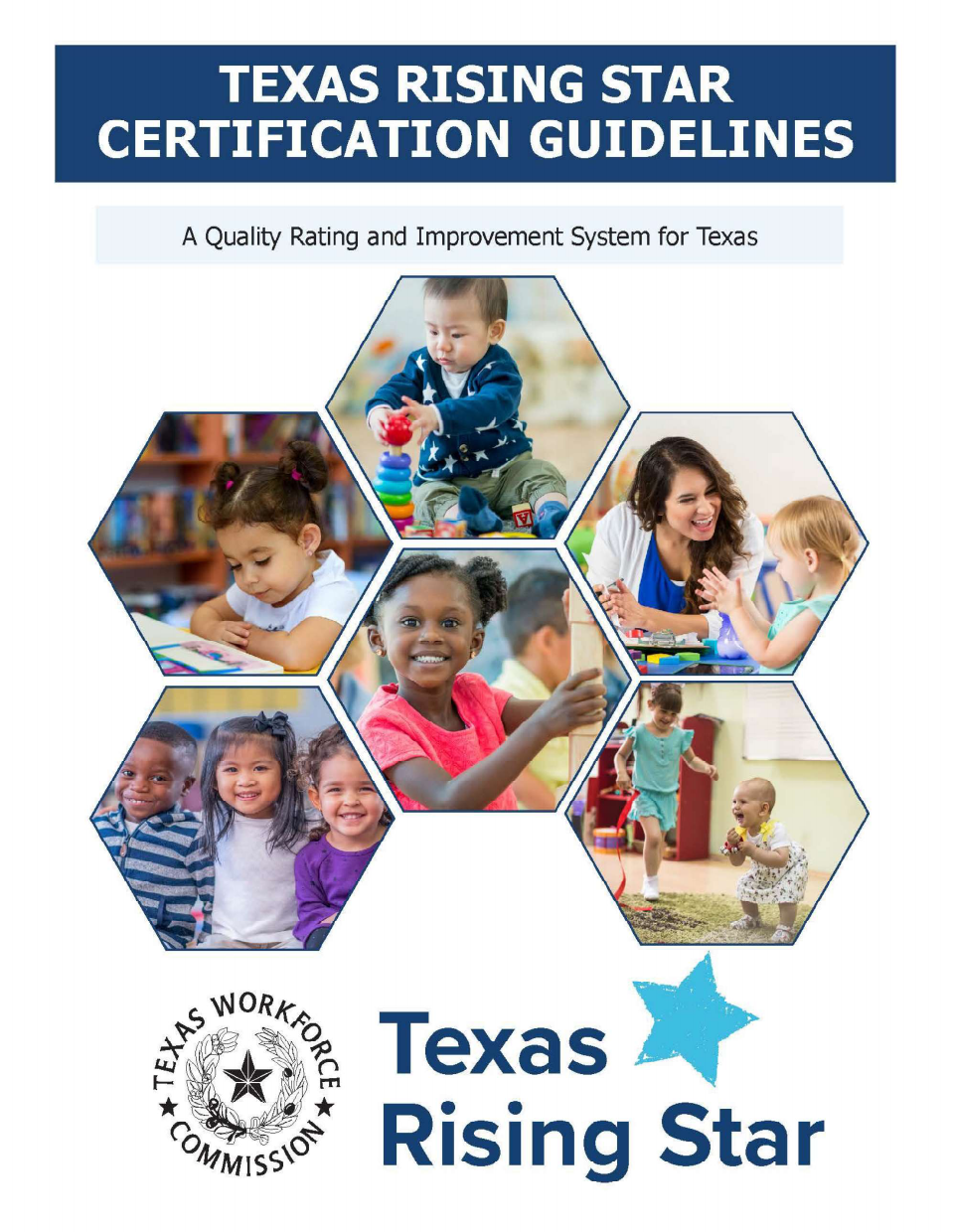

Texas Rising Star Certification Guidelines 2 October 2024
Table of Contents
Child Care Services ..................................................................................................................... 5
Section 1: Introduction to Texas Rising Star................................................................................ 5
Historical Perspective .............................................................................................................. 5
A System for Progressive Quality Improvement ...................................................................... 7
Financial Incentives: Tiered Enhanced Payment Rates .........................................................8
Entry Level Designation .......................................................................................................... 8
Entry Level Timeline New CCS Regulated Programs ...................................................... 10
Criteria for the Entry Level Extension Waiver.................................................................... 11
Signed Agreements ................................................................................................................ 11
CCS Provider Agreement ................................................................................................... 11
Texas Rising Star Mentoring Agreement............................................................................ 11
Summary of the Texas Rising Star Criteria ............................................................................ 12
Star-Level Scoring ................................................................................................................. 13
Texas Rising Star Assessor and Mentor Roles ....................................................................... 14
Assessor and Mentor Roles in Relation to Child Care Regulation ....................................... 15
Section 2: Certification Process ................................................................................................. 16
Eligibility for Texas Rising Star............................................................................................. 16
Star-Level Drop Deficiencies ................................................................................................ 16
Deficiencies Leading to a Star-Level Drop Centers ......................................................... 16
Deficiencies Leading to a Star-Level Drop Homes .......................................................... 16
Deficiencies Leading to a Star-Level Drop School-Age Programs ................................... 17
Probation Deficiencies ........................................................................................................... 17
Deficiencies Resulting in a Probation Centers ................................................................. 17
Deficiencies Resulting in a Probation Homes .................................................................. 17
Deficiencies Resulting in a Probation School-Age Programs ........................................... 18
Ongoing Screening Process for Certified Programs ................................................................ 18
Texas Rising Star Certification Process ................................................................................. 19
Recertification Process .......................................................................................................... 21
US Department of Defense and Nationally Accredited Early Learning Programs ................... 21
US Department of Defense Operated Child Care and Early Learning Programs................. 21
TWC-Recognized National Accreditations ......................................................................... 22
Certification Process .......................................................................................................... 22
Certification and Recertification Process ............................................................................ 23

Texas Rising Star Certification Guidelines 3 October 2024
CLI Engage Free Online Resources for Texas Rising Star Programs ................................... 23
Considerations for Programs Adhering to Specific Early Learning Philosophies .................... 24
Logo and Outreach Materials ................................................................................................. 24
Section 3: Types of Program Assessments................................................................................. 25
Initial Assessment .................................................................................................................. 25
Annual Monitoring Visit ........................................................................................................ 25
Classroom Observations ..................................................................................................... 26
Director and Staff Training and Qualifications ................................................................... 26
Results of the Annual Monitoring Visit .............................................................................. 26
Recertification Assessment .................................................................................................... 26
Star-Level Evaluation ............................................................................................................ 27
Category Reassessment.......................................................................................................... 27
Facility Changes .................................................................................................................... 28
Reconsideration ..................................................................................................................... 29
Director and Staff Changes .................................................................................................... 29
Texas Workforce Registry ..................................................................................................... 30
CLASS® Option for Category 2 Observations....................................................................... 30
Section 4: Continuous Quality Improvement ............................................................................. 32
Continuous Quality Improvement Plans ............................................................................. 32
Service Improvement Agreements ...................................................................................... 32
Targeted Assistance for Texas Rising Star Screening Impacts ............................................ 32
Continuous Quality Improvement .......................................................................................... 33
Service Improvement Agreement ........................................................................................... 34
Texas Rising Star Probation ................................................................................................... 35
Losing a Star Level and Texas Rising Star Suspension Status ................................................ 36
Table 4.1: Initial Impact of Certain Deficiencies on Texas Rising Star Status ..................... 38
Table 4.2: Impact of Additional Deficiencies on Texas Rising Star Status .......................... 39
Termination of CCS or Mentoring Services ........................................................................... 40
CCS Provider Agreement Texas Rising Star Provisions .................................................. 40
Texas Rising Star Mentoring Agreement............................................................................ 40
Section 5: References and Forms ............................................................................................... 42
Screening Forms .................................................................................................................... 42
Facility Assessment Record Forms ........................................................................................ 42
Classroom Assessment Record Forms ................................................................................... 43
Texas Rising Star Certification Guidelines 4 October 2024
Other Resources .................................................................................................................... 43
Facility Change Rubric .......................................................................................................... 45
Texas Rising Star Impacts Notice .......................................................................................... 47
Accreditation Recognition Application Process ..................................................................... 48
Quick Reference List of Changes .............................................................................................. 50
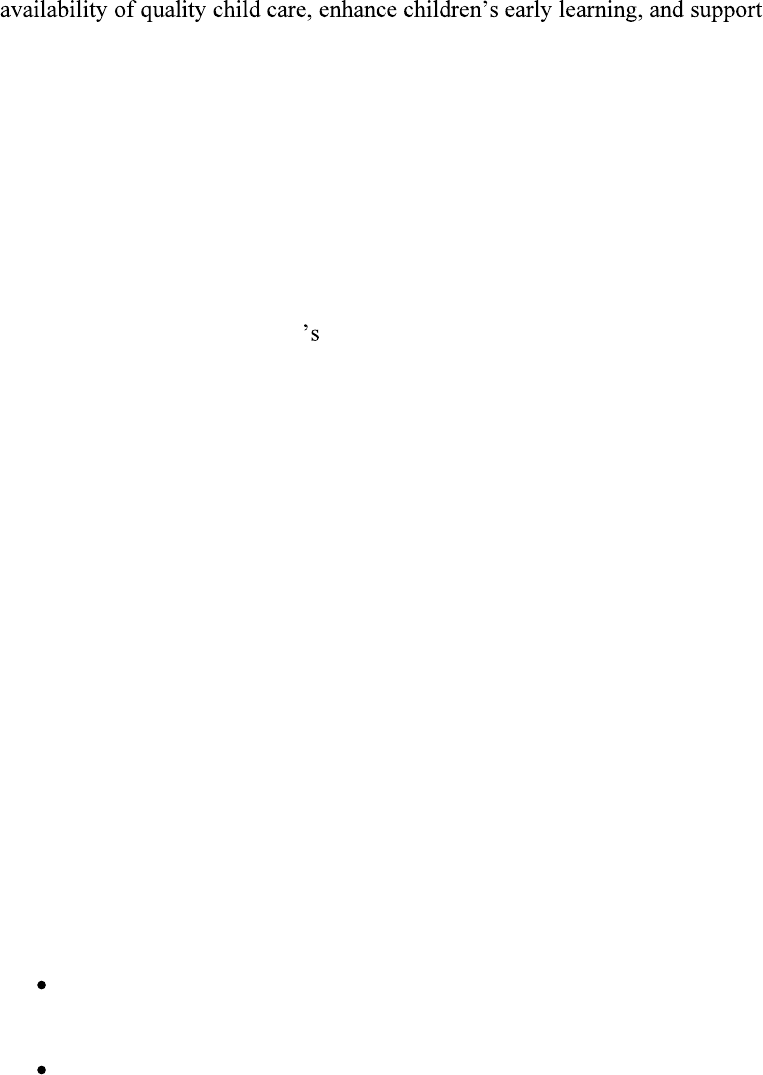
Texas Rising Star Certification Guidelines 5 October 2024
Child Care Services
The Texas Workforce Commission (TWC) oversees the Child Care Services (CCS) program,
which provides financial aid (also known as subsidies or scholarships) for child care to families
who meet income requirements and promotes long-term self-sufficiency by enabling parents to
work or attend education activities. The CCS program strives to educate parents about the
child care and
early learning programs that are working to improve the quality of the child care and early
education they provide.
Children enrolled in CCS may attend any child care and early learning program as long as that
program has agreed to participate in the CCS program and has a signed CCS Provider
Agreement with a Local Workforce Development Board (Board). Under state law, CCS
providers must also participate in the Texas Rising Star program.
Section 1: Introduction to Texas Rising Star
The Texas Rising Star program is a quality rating and improvement system (QRIS) for child care
programs participating in TWC CCS program. Texas Rising Star certification is available to
licensed centers and licensed and registered child care home facilities that meet the certification
criteria.
The Texas Rising Star program offers three levels of quality certification (Two-Star, Three-Star,
and Four-Star) to encourage child care and early learning programs to attain progressively higher
levels of quality. These certification levels are tied to graduated enhanced payment rates for
children receiving child care financial aid.
Numerous research studies have shown that children who attend higher-quality child care and
early learning programs are more prepared for school entry than children who do not attend high-
quality programs. Child care and early learning programs that achieve Texas Rising Star
certification offer quality care that exceeds the Texas Health and Human Services Commission
(HHSC) Child Care Regulation (CCR) minimum health and safety standards and are in a better
position to positively affect the physical, social-emotional, and cognitive development of
children. As programs advance through the levels of Texas Rising Star certification, they are
increasingly able to positively affect the development of the children they serve daily.
Historical Perspective
The movement to improve and standardize quality in child care and early learning programs
began in the 1970s, but did not gain momentum until the 1990s, when states began to implement
tiered QRISs and to tie enhanced Child Care and Development Fund (CCDF) payment rates to
levels of quality. The following is a brief history of the evolution of QRIS in Texas:
In the 1980s, a state workgroup was formed to research and develop standards for early
learning programs in Texas, providing the basis for the Texas Rising Star Provider
Certification criteria.
From 1991 through 2000, the Texas Rising Star Provider Certification criteria were in use
to evaluate quality in CCS child care and early learning programs in Texas.
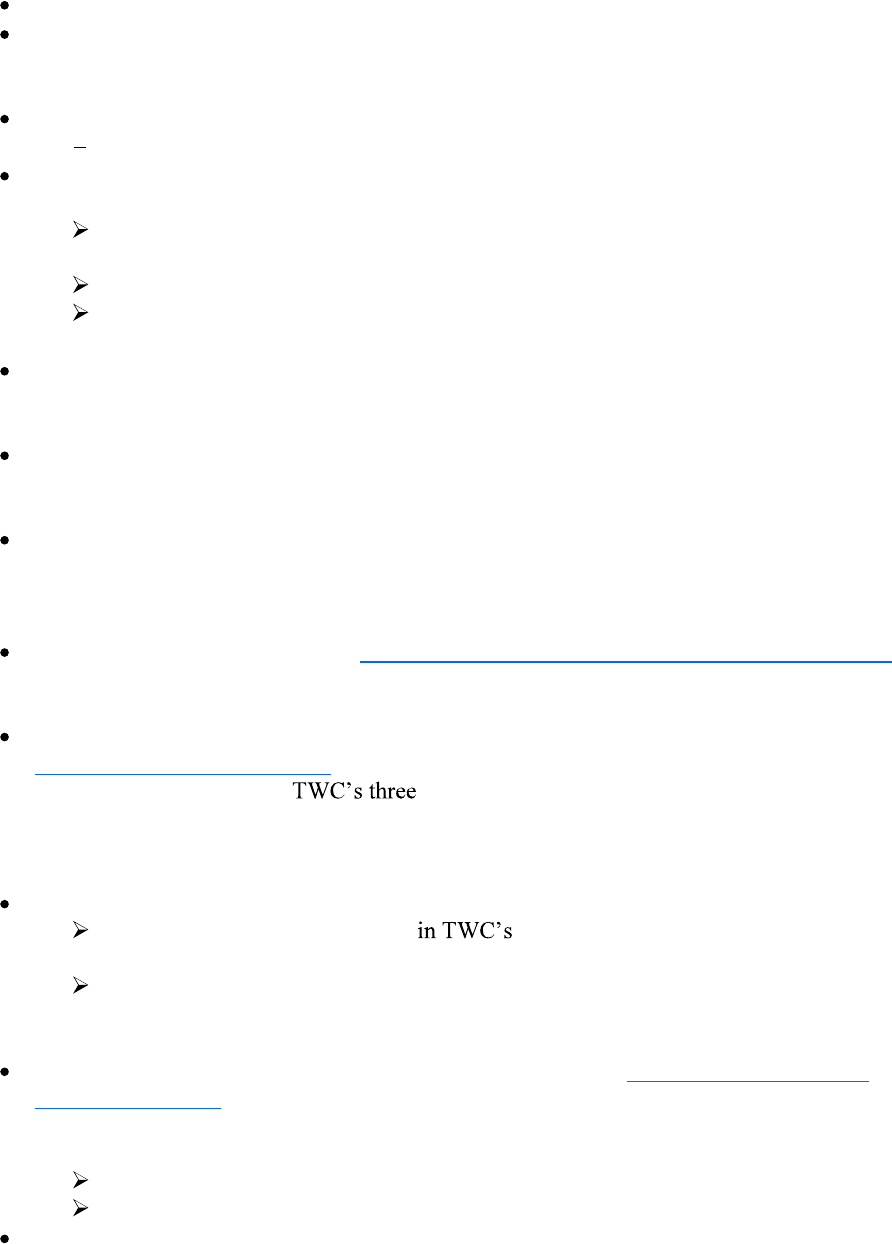
Texas Rising Star Certification Guidelines 6 October 2024
In 1999, a new state workgroup formed to review and revise these criteria.
In October 2000, the Texas Rising Star Certification Guidelines (Guidelines) were
released, reflecting the recommendations of the workgroup, including revamping
assessment and certification processes.
In 2003, TWC updated the recertification and monitoring time frames for Texas Rising
Star certified programs.
In 2013, the 83rd Texas Legislature passed House Bill (HB) 376, which required TWC
to:
create a review workgroup to recommend revisions to the Texas Rising Star
program;
establish graduated payment rates for Texas Rising Star certification levels; and
make funds available to Boards to hire Texas Rising Star mentors and assessors in
order to provide technical assistance to child care and early learning programs.
On January 27, 2015, TWC approved the changes proposed by the Texas Rising Star
review workgroup, as required by HB 376. Full implementation of the revisions was
completed on September 1, 2015.
In 2015, the 84th Texas Legislature passed HB 208, which required TWC to implement a
process for the regular review of the Texas Rising Star quality standards. TWC adopted
rules which established a review of Texas Rising Star every four years.
In late 2015 and early 2016, TWC solicited further input on the Texas Rising Star
program and the 2015 revisions. Based on the input from these stakeholder meetings,
TWC modified the Guidelines to streamline the application and assessment processes and
to clarify and improve criteria.
In 2018, TWC commissioned the Strengthening Texas Rising Star Implementation Study
to examine the reliability of the assessment and indicators of external validity of
certification criteria.
In 2019, Texas Rising Star underwent its first four-year review, and TWC convened a
Four-Year Review Workgroup to review the Texas Rising Star program, as required by
HB 208. In October 2020, -member Commission (Commission) approved
the proposed rules regarding Texas Rising Star. In January 2021, the final rules and
updated guidelines were adopted. Modifications to the Texas Rising Star program
became effective on January 25, 2021.
In September 2021, the 87th Texas Legislature enacted HB 2607, which:
requires all child care programs CCS program to participate in Texas
Rising Star; and
directs TWC to include an entry-level rating for child care and early learning
programs and establish the maximum length of time that a provider may
participate in CCS at the entry level.
In September 2022, the Commission adopted amendments to TWC Chapter 809 Child
Care Services rules to implement the new requirements. Effective October 3, 2022, all
child care and early learning programs in CCS must participate in the Texas Rising Star
program. In order to be a CCS provider, child care and early learning programs must:
meet the Entry Level designation point threshold; and
attain at least a Two-Star certification level within 24 months.
In July 2023, Texas Rising Star underwent its second four-year review as follows:
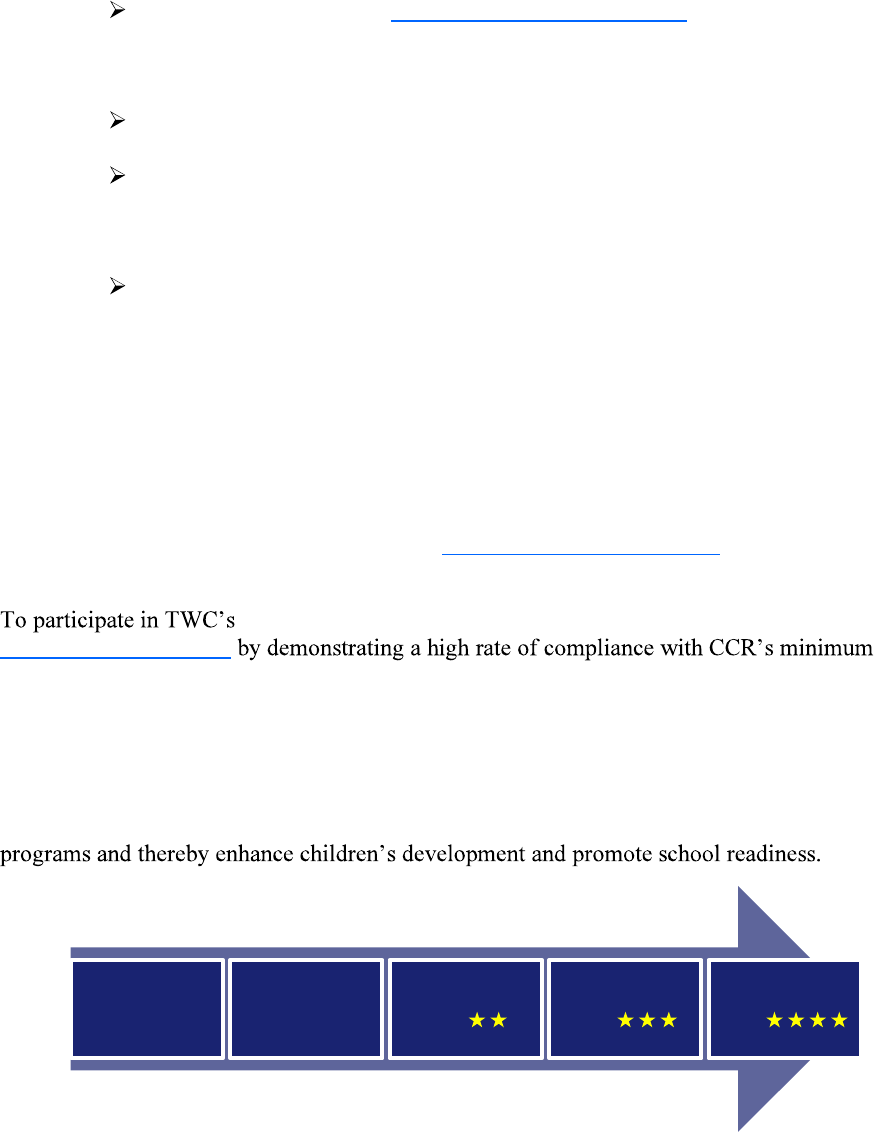
Texas Rising Star Certification Guidelines 7 October 2024
TWC convened the 2023 Four-Year Review Workgroup to review the Texas
Rising Star program, as required by HB 208. With support from TWC, the
workgroup led a collaborative review that involved stakeholders from across the
state.
TWC conducted six public meetings throughout the state in February 2024 about
the recommendations from the review.
Based upon the stakeholder input received, TWC presented Texas Rising Star
changes to both the Ch. 809 Texas Rising Star Rules, as well as the Texas Rising
Star Guidelines at the April 30, 2024 Commission Meeting. The Final Rule
amendments and Guidelines revisions were approved in July 2024.
Modifications to the Texas Rising Star program became effective on September 1,
2024, with the new Classroom and Facility Assessment tools being implemented
on October 1, 2024.
A System for Progressive Quality Improvement
In Texas, child care and early learning programs must adhere to minimum standards defined by
CCR. These standards help ensure the health and safety of children in care outside of the home.
As the child care regulatory and licensing agency for Texas, CCR monitors programs for
compliance with minimum standards and may issue corrective or adverse actions when programs
fail to comply. CCR also makes this essential licensing and inspection data available to the
public.
CCS program, child care and early learning programs must achieve
Entry Level designation
standards. Child care and early learning programs then have up to two years to attain (at least a
Two-Star) Texas Rising Star certification.
For a child care and early learning program to meet and maintain Texas Rising Star certification
criteria, the program must demonstrate consistent compliance with CCR minimum standards.
Texas Rising Star is intended to measurably improve the quality of child care and early learning
Texas Rising Star provides a systematic approach to assess, improve, and communicate the level
of quality in child care and early learning programs. Texas Rising Star assigns a score to early
learning programs that meet a set of defined program standards. These standards exceed those
required by CCR minimum standards. By participating in Texas Rising Star, programs engage in
a process of continuous quality improvement.
Minimum
Standards
Entry Level
Designation
Texas Rising
Star
Texas Rising
Star
Texas Rising
Star
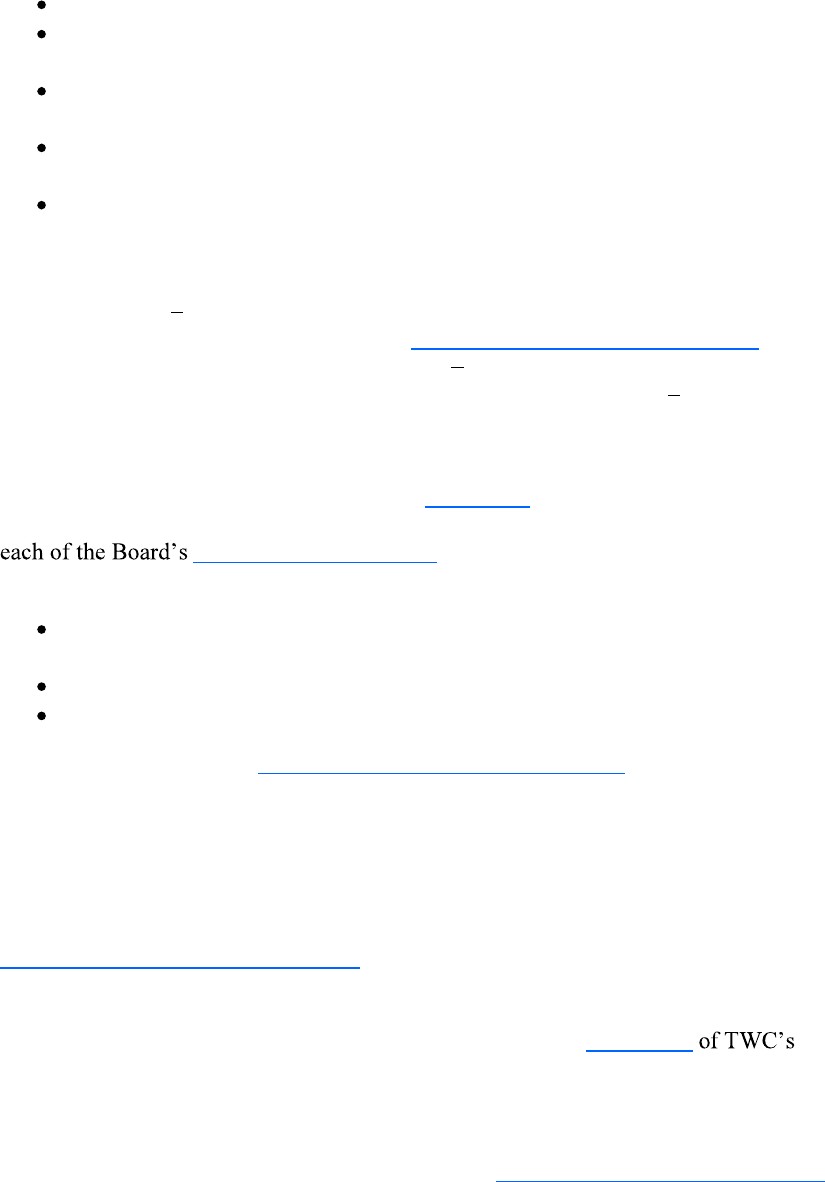
Texas Rising Star Certification Guidelines 8 October 2024
As a QRIS, Texas Rising Star includes the following key components:
Standards criteria that are understandable, measurable, and verifiable
Accountability and transparent monitoring to assess achievement of (and ongoing
compliance with) quality standards and to validate the assignment of scores
Support to encourage participation and improve quality, including training, technical
assistance, mentoring, and peer-learning opportunities
Consumer education to inform families and the community about the importance of
quality in child care and early learning programs
Financial incentives to help programs improve learning environments, attain higher
scores, and sustain long-term quality
Financial Incentives: Tiered Enhanced Payment Rates
Texas Rising Star certified programs receive higher payment rates for children enrolled in the
CCS program than noncertified programs. Texas Government Code §2308.315 requires the
minimum payment rate for a Texas Rising Star certified program to be greater than the
maximum rate established for a program that is not Texas Rising Star certified for the same
category of care. Specifically, Two-Star rates must be at least 5 percent higher, Three-Star rates
must be at least 7 percent higher, and Four-Star rates must be at least 9 percent higher.
TWC Chapter 809 Child Care Services rule §809.20(a) requires Boards to establish their
maximum payment rates at or above a level established by the Commission. TWC has published
maximum payment rates as of October 1, 2024. The Commission requires
Boards to set their Texas Rising Star maximum payment rates at or above the following levels:
For Four-Star providers, at least 9 percent higher than the 75th percentile of the most
recent Market Rate Survey
For Three-Star providers, at least 7 percent higher than the 75th percentile
For Two-Star providers, at least 5 percent higher than the 75th percentile
TWC has also published a Texas Rising Star Revenue Calculator to help child care and early
learning programs forecast the revenue impact of enhanced payment rates.
Note: Child care and early learning programs that are designated as Entry Level do not receive
enhanced payment rates.
Entry Level Designation
Texas Government Code §2308.3155 requires that all CCS child care and early learning
programs participate in the Texas Rising Star program beginning at the Entry Level designation,
and it requires TWC to establish a maximum length of time that a child care and early learning
program may participate at Entry Level designation. Section 809.131(d) rules
establishes a maximum period of 24 months during which a program may participate at the Entry
Level designation.
Child care and early learning programs that are interested in participating in CCS must submit an
Interest Form to start the Entry Level process. (See Step 1: Becoming a CCS Provider for more
information.)
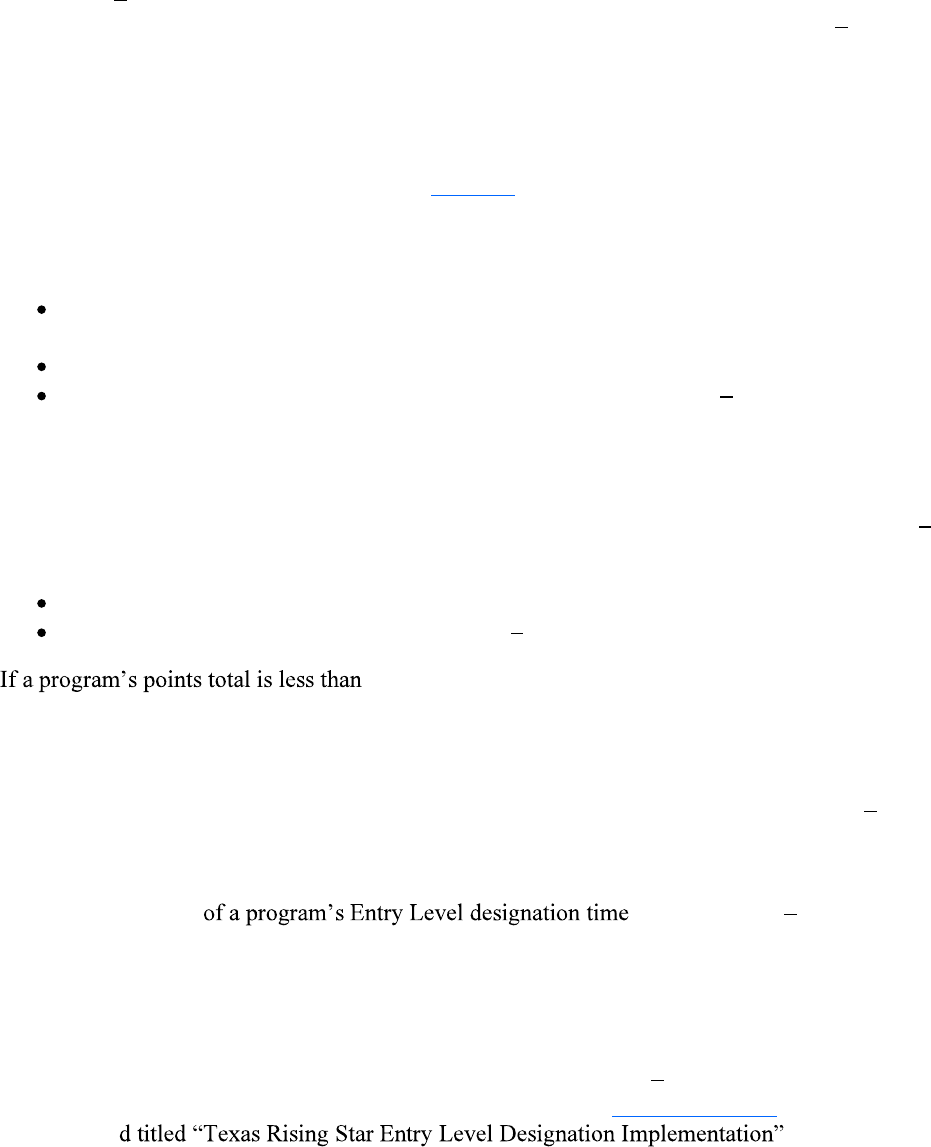
Texas Rising Star Certification Guidelines 9 October 2024
Entry Level designated programs will be offered technical assistance, resources and materials,
and mentoring to support them in attaining Texas Rising Star certification. Entry Level
designated programs may determine if they want to accept these technical assistance and
mentoring resources.
Note: Relative providers and out-of-state child care and early learning programs are not required
to participate in Texas Rising Star. Relative providers will continue to operate under the current
TWC rules for relative providers set forth in §809.91.
To qualify for Entry Level designation, a child care and early learning program must meet the
following minimum quality standards. The program must:
be licensed or registered with CCR (may have an initial permit) or regulated by the
United States military;
not be on corrective or adverse action with CCR; and
not exceed the points threshold of 40 for high- and/or medium-high weighted CCR
deficiencies (based on a review of the most recent six months of CCR licensing history).
Child care and early learning programs with initial permits or programs with fewer than six
months of licensing history will be reviewed based on all available CCR licensing history. The
points threshold of 40 is calculated by assigning the following points to high- and medium-high
weighted CCR deficiencies received within the most recent six months of CCR licensing history:
Five points are added for each high-weighted deficiency.
Three points are added for each medium-high weighted deficiency.
or equal to 40, the program meets the points threshold
requirement for Entry Level designation. There are no exceptions or waivers available to
programs that fail to meet the Entry Level points threshold.
Once designated as Entry Level, a child care and early learning program will have a maximum of
24 months to attain star-level certification in Texas Rising Star. At minimum, Entry Level
designated programs must be reviewed for Texas Rising Star certification eligibility no later than
the 12th month of the 24-month period.
If, at the 18th month , an Entry Level designated
program will not be eligible for star-level certification in Texas Rising Star by the end of the
Entry Level designation time frame, the program may not receive CCS referrals for new families
until it attains star-level certification. The only exception allowed is if the program is located in a
child care desert or serves an underserved population as defined and approved by TWC; if a
program qualifies for a CCS referral exception, the program may continue to receive referrals for
new families during the last six months of its 24-month Entry Level designated period. The
program will be monitored monthly for certification eligibility. WD Letter 12-24, issued August
13, 2024, an has additional
information about requesting a CCS referral exception.
Note: Referrals may be made for siblings of children who are currently enrolled in the program
during this period. Intake can be opened for new CCS family referrals once the program
complies with the initial Texas Rising Star certification screening requirements.
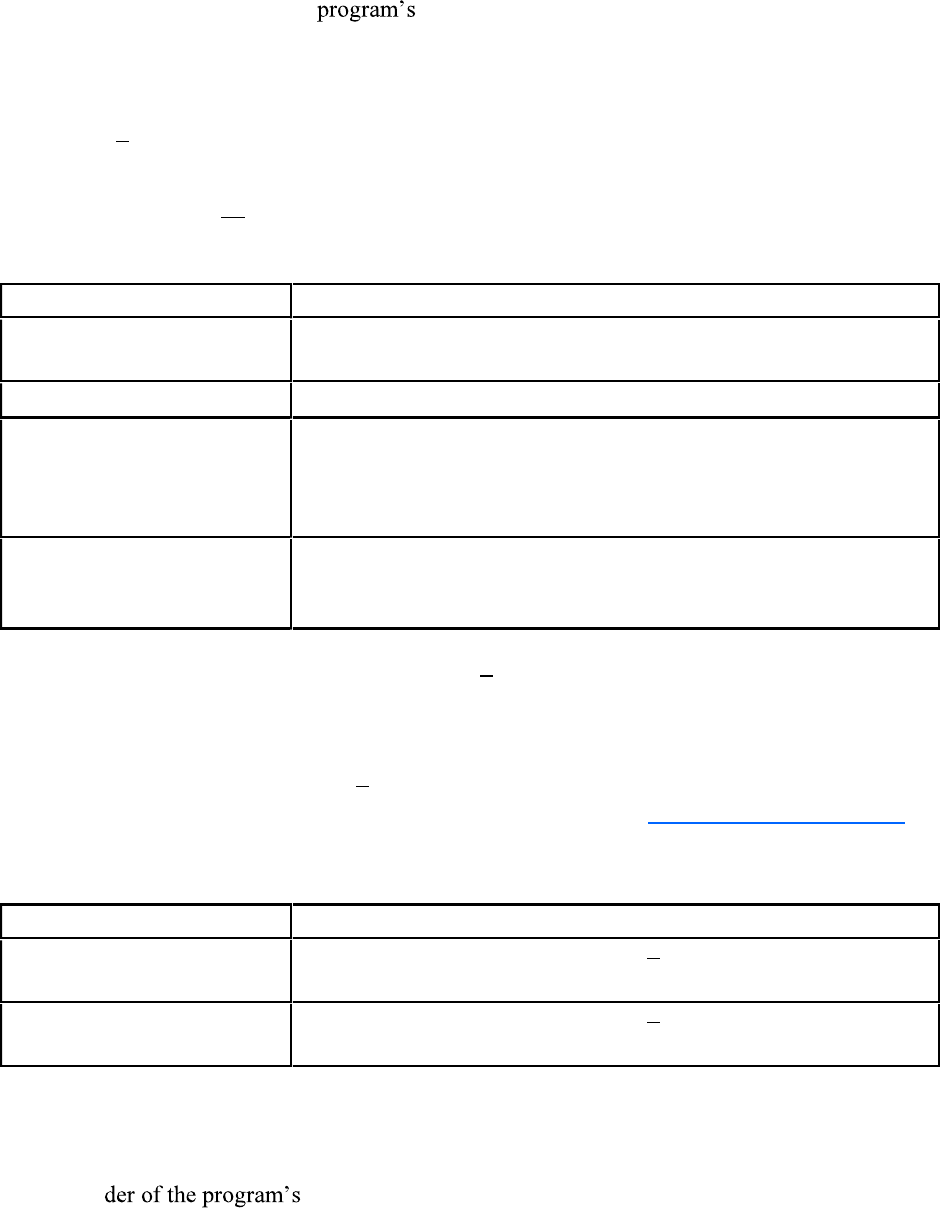
Texas Rising Star Certification Guidelines 10 October 2024
The referral restriction in the last six months is intended to minimize the likelihood that children
are placed in a facility that ultimately fails to meet Texas Rising Star certification criteria.
Therefore, only children who were previously referred (including any new siblings) may
continue to be served during the last six-month extension period. At the 60th day of
the end of the extension period, if the program is still ineligible for certification, Boards will be
required to notify the program and all currently referred families that the program is in jeopardy
of losing its CCS agreement.
Entry Level designated programs may be assessed for star-level certification at any time within
the 24-month time frame if they meet certification eligibility and screening requirements.
Entry Level Timeline New CCS Regulated Programs
Effective October 3, 2022, new CCS programs will follow the timeline below:
Deadline
Action
CCS Provider Agreement
start date
Child care and early learning program must meet Entry Level
designation eligibility.
No later than 12 months
Boards must screen program for initial star-level certification.
18 months If the program is not meeting Texas Rising Star certification
criteria, no new family referrals may be made. The program will
be reviewed monthly for the remainder of the designation
timeline.
24 months The program must achieve Texas Rising Star certification or
notify the Centralized Assessment Entity (CAE) of their
assessment-ready status to continue providing CCS.
Additionally, effective April 1, 2023, Entry Level designated programs will be reviewed for
Entry Level points threshold compliance every six months beginning on October 1, 2023. Any
program exceeding the points threshold at the October review or at the subsequent April review
will no longer be eligible to provide CCS and will have its CCS Provider Agreement terminated
within 30 calendar days. Entry Level designated programs may continue to provide CCS if they
are placed on Corrective Action with CCR, per the guidance in the Child Care Services Guide, as
long as the programs do not exceed the points threshold at the applicable October or April
review.
Date
Action
October 1 each year Boards must review all Entry Level designated programs for
continued points threshold compliance
April 1 each year Boards must review all Entry Level designated programs for
continued points threshold compliance
Child care and early learning programs that are in noncompliance with the points threshold are
not eligible for any waiver or extension to their CCS Provider Agreement. The program may
return to providing CCS once it meets the Entry Level points threshold and it may be provided
the remain Entry Level time frame that was not previously exhausted.
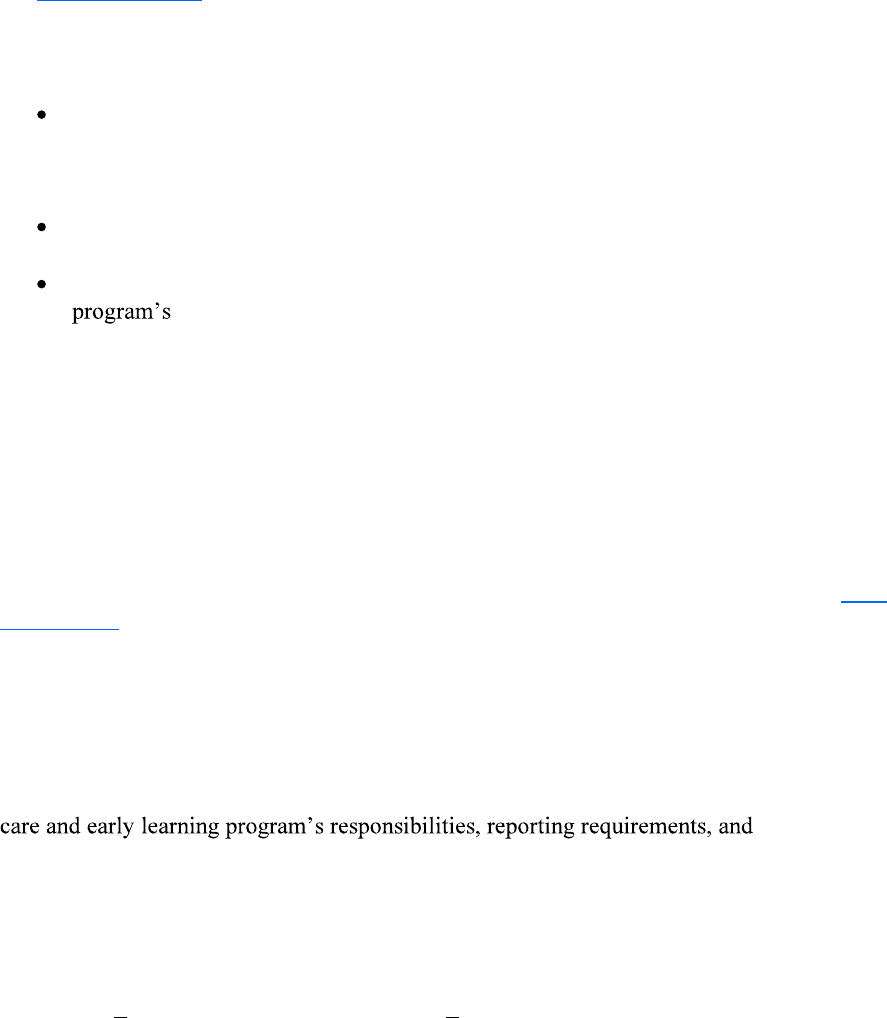
Texas Rising Star Certification Guidelines 11 October 2024
Criteria for the Entry Level Extension Waiver
Child care and early learning programs that are unable to achieve Texas Rising Star certification
by the end of the 24-month time frame may submit a request to their Board for an Entry Level
extension waiver. The Board will review the request and determine whether the program meets
at least one of the criteria listed below before forwarding the request to TWC for determination,
per WD Letter 12-24.
To be eligible for an Entry Level extension waiver, the child care and early learning program
must be:
located in a child care desert (an area where the number of children younger than six
years of age who have working parents is at least three times greater than the capacity of
licensed child care programs in the area) or serving an underserved population as
determined by TWC;
unable to meet the certification requirements due to a declared emergency/disaster;
and/or
unable to meet the certification requirements due to conditions that are outside the
control.
Note: An underserved population may include limited availability of infant capacity or care for
children with disabilities.
TWC will review all Entry Level extension waiver requests and may grant a program up to an
additional 36 months to remain at Entry Level in order for the program to achieve Texas Rising
Star certification. Child care programs with approved Entry Level extension waivers will not be
able to receive new family referrals unless the program is located in a child care desert or serves
an underserved population and is approved by TWC to accept new family referrals.
Additional information regarding implementing Entry Level designation is provided in WD
Letter 12-24.
Signed Agreements
CCS Provider Agreement
Once a child care and early learning program is designated as Entry Level, the program is
required to enter into a CCS Provider Agreement with its Board to provide child care to eligible
families. The signed agreement details the requirements for providing CCS, including the child
conditions for
payment. The CCS Provider Agreement also provides information on Texas Rising Star and the
program parameters that CCS programs must meet. Child care and early learning programs must
have a signed CCS Provider Agreement with the Board whose area the program is located in
regardless of accepting CCS referrals from that Board area.
Texas Rising Star Mentoring Agreement
Entry Level designated and Texas Rising Star certified child care and early learning programs
are provided mentoring supports by the Board whose area the program is located in. Programs
that want to receive mentoring, coaching, and support must enter into a signed Texas Rising Star
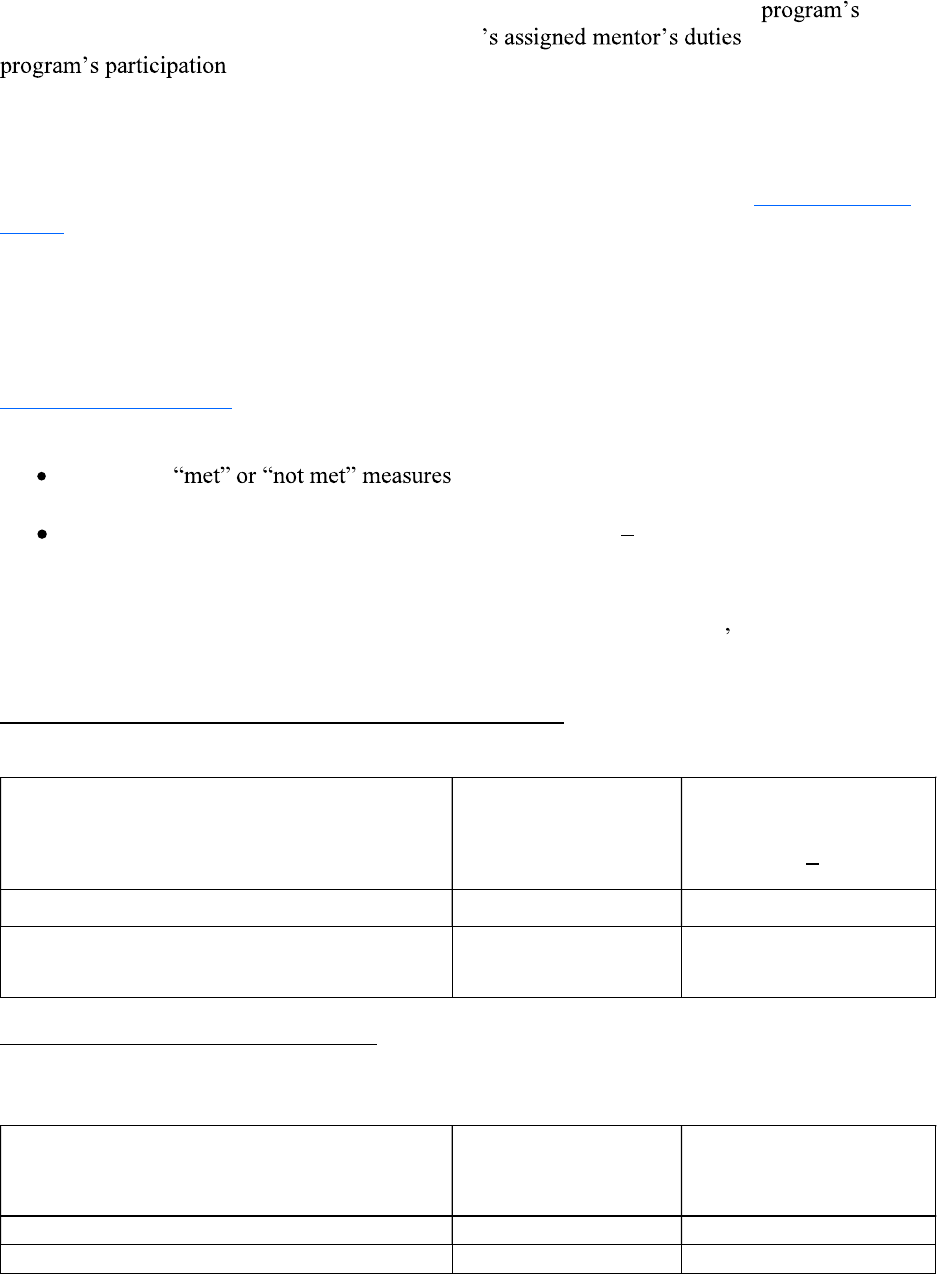
Texas Rising Star Certification Guidelines 12 October 2024
Mentoring Agreement with their Board. The mentoring agreements outline the
responsibilities and requirements and the program regarding the
in Texas Rising Star.
Note: Child care and early learning programs may not be terminated from CCS for failure to
comply with their Texas Rising Star Mentoring Agreement, including failure to make
advancements in the quality improvement strategies outlined in their Continuous Quality
Improvement Plan (CQIP). Programs may opt out of mentoring services. (See Self-Developed
CQIPs for more information.)
Summary of the Texas Rising Star Criteria
Child care and early learning programs must be assessed on the Texas Rising Star certification
criteria, as outlined in the Facility Assessment Record Form (FARF) and the Classroom
Assessment Record Form (CARF). The forms are available on the Texas Rising Star website at
Texas Rising Star Tools. Below is a summary of the Texas Rising Star certification criteria,
which are based on the following measures:
Structural are required for certification at any level (Two-,
Three-, or Four-Star).
Qualitative, points-based measures scored on a scale of 0 3 points determine the star
level.
Each subcategory contains required measures, points-based measures, or a combination of the
two. Refer to the facility and classroom assessment forms for each measure s definition and
scoring criteria.
Category 1: Director and Staff Qualifications and Training
Measures relating to the education, experience, and training of all staff, including directors:
Subcategory
Structural
Measures?
(Met/Not Met)
Points-Based
Measures?
(Scored 0 3 points)
Director Qualifications and Training Yes Yes
Staff Qualifications, Orientation, and
Training
Yes Yes
Category 2: Teacher-Child Interactions
Measures relating to group size, staff-to-child ratio, and quality of interactions between teachers
and children in the classroom:
Subcategory
Structural
Measures?
(Met/Not Met)
Points-Based
Measures?
(Scored 0-3 points)
Group Size/Staff Ratios (center
-
based only)
No
Yes
Warm and Responsive Style No Yes
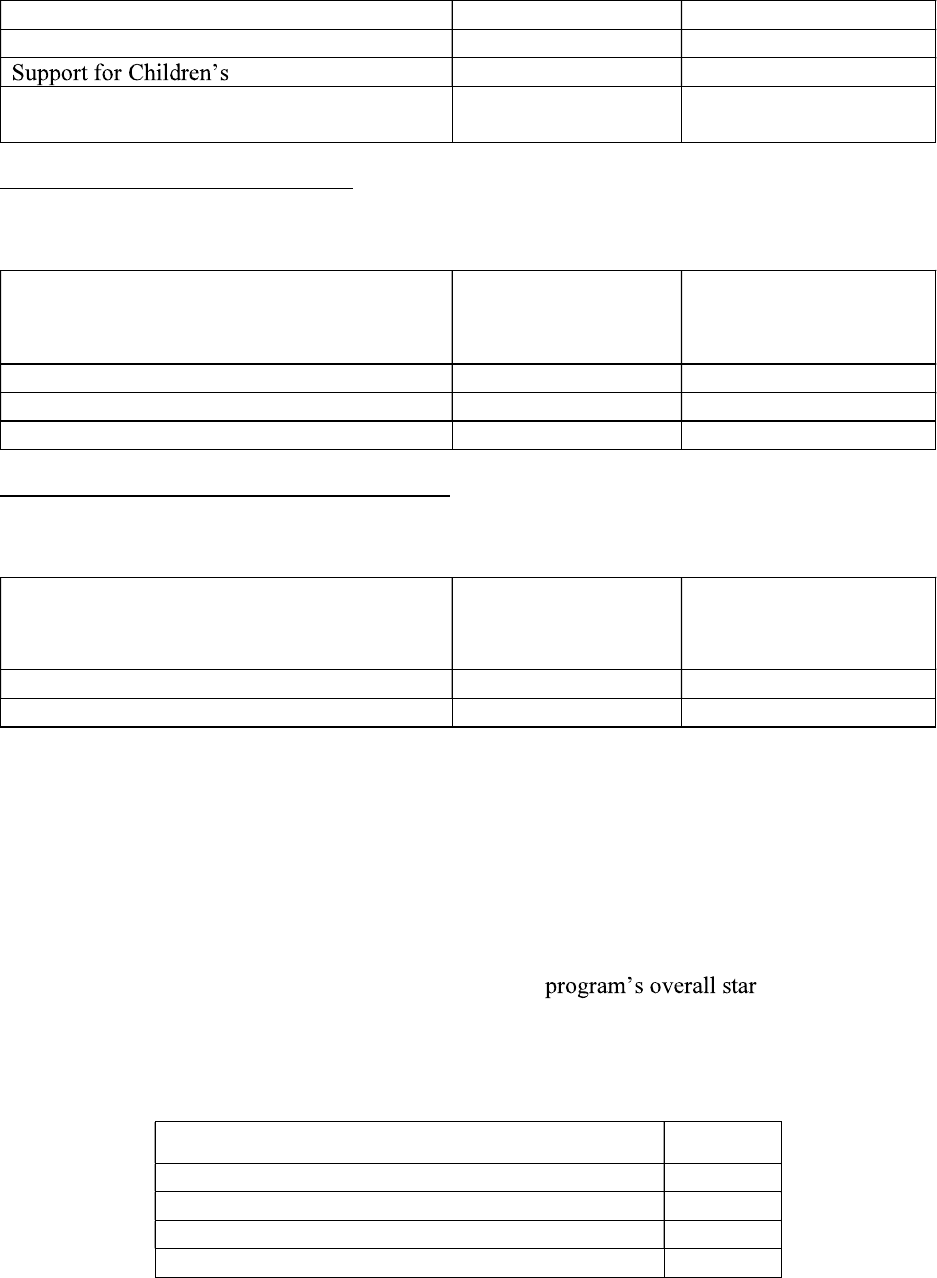
Texas Rising Star Certification Guidelines 13 October 2024
Language Facilitation and Support No Yes
Play-Based Interactions and Guidance No Yes
Regulation No Yes
Instructional Formats and Approaches to
Learning
No Yes
Category 3: Program Administration
Measures relating to education and involvement of parents and families in the program and how
the program is managed:
Subcategory
Structural
Measures?
(Met/Not Met)
Points-Based
Measures?
(Scored 0-3 points)
Family Education Yes Yes
Family Involvement
Yes
Yes
Program Management Yes Yes
Category 4: Indoor and Outdoor Environments
Measures relating to the equipment, materials, and arrangement of indoor and outdoor learning
environments:
Subcategory
Structural
Measures?
(Met/Not Met)
Points-Based
Measures?
(Scored 0-3 points)
Indoor Learning Environments No Yes
Outdoor Learning Environments No Yes
Star-Level Scoring
If a program meets all the required measures for Texas Rising Star certification, the scores of the
points-based measures are used to determine the star level for each category and ultimately for
the program as a whole. Points-based measures are scored and awarded through both in-person
observation and document review.
A Texas Rising Star assessment assigns each of the four certification categories a star level based
on the average score across the points-based subcategory measures. Additionally, each category
is assigned a specific weight that is used to calculate the level. Category 2:
Teacher-Child Interactions has the highest weight at 40 percent, because teacher-child
interactions are known to correlate strongly with high-quality care and positive child outcomes.
Below are the weights assigned to each of the four categories:
Certification Category Weight
1: Director and Staff Qualifications and Training
20%
2: Teacher-Child Interactions 40%
3: Program Administration
20%
4: Indoor and Outdoor Environments
20%
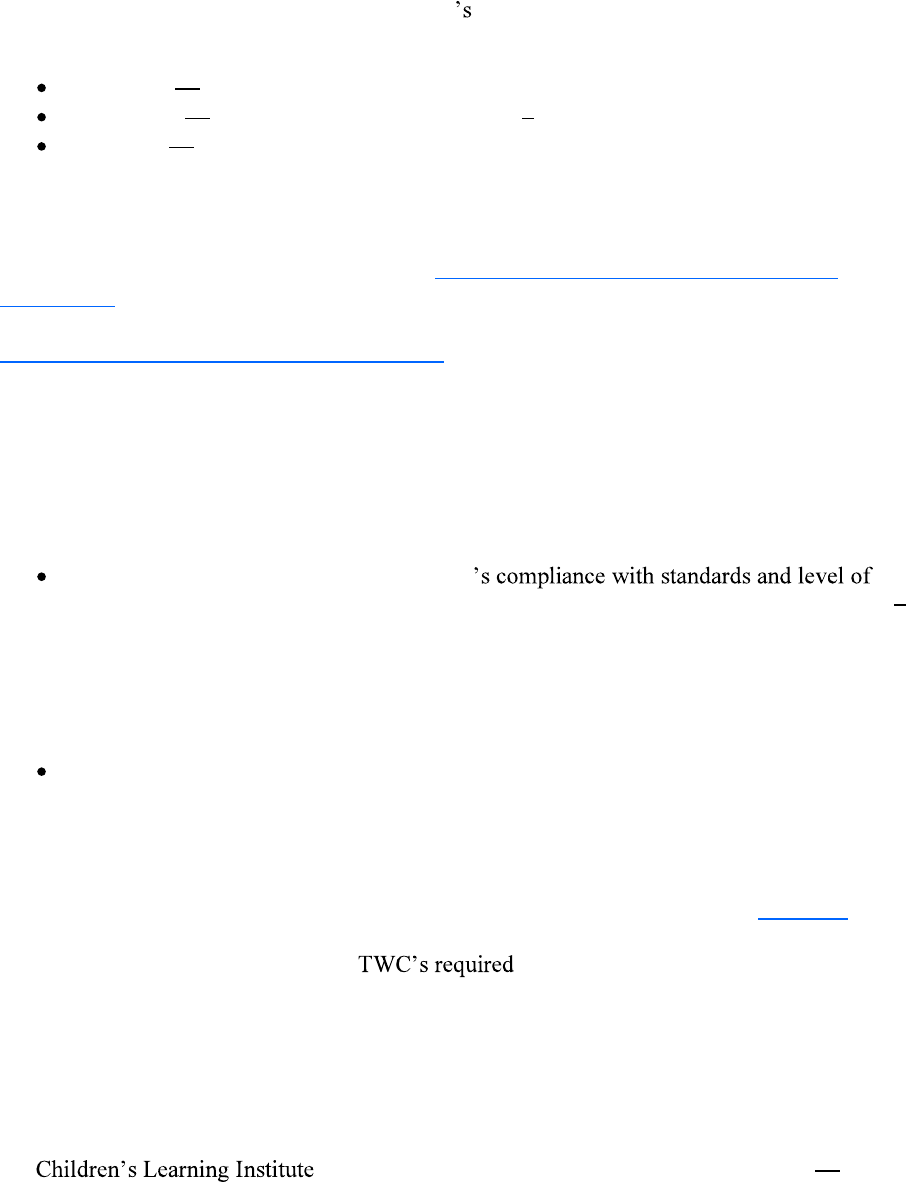
Texas Rising Star Certification Guidelines 14 October 2024
The score for a points-based measure in which multiple classrooms are assessed is based on the
median score of the measures, which are then averaged. The methodology for determining the
star level of a category is based on the program average score across all measures of a
category:
Four-Star average score is 2.4 or greater (80 percent of total possible points)
Three-Star average score is 1.80 to 2.39 (60 79.9 percent of total possible points)
Two-Star average score is below 1.80 (fewer than 60 percent of total possible points)
For nationally accredited programs, Categories 1 and 3 will receive an automated average score
of 3.0.
Eligible early learning programs that receive Classroom Assessment Scoring System®
(CLASS®) observations have the option to have their CLASS® scores replace a Category 2:
Teacher-Child Interactions observation during an assessment or annual monitoring visit. See
CLASS® Option for Category 2 Observations for more information.
Texas Rising Star Assessor and Mentor Roles
Texas Rising Star staff members interact regularly with child care and early learning programs to
recruit, assess, and onboard new programs and to mentor certified programs in order to help
them attain increasing levels of quality. Texas Rising Star employs two key roles to work with
programs: assessors and mentors.
Assessors objectively evaluate a program
quality. Assessors evaluate certification status for new and existing Texas Rising Star
certified programs using the applicable facility and classroom assessment forms.
Assessors are required to successfully complete the Texas Rising Star Certification
course to demonstrate mastery of the Texas Rising Star certification criteria.
Additionally, assessors must demonstrate their ongoing mastery of the criteria and their
ability to reliably assess program quality through participation in quarterly checks.
Mentors provide technical assistance and coaching support to assist child care and early
learning programs in attaining, maintaining, and improving Texas Rising Star
certification status. Mentors regularly consult with programs to develop and monitor
CQIPs, model best practices, provide constructive feedback, deliver targeted training, and
refer programs to other helpful resources and training. Mentors must meet the minimum
education requirements established by the Commission and outlined in §809.134.
Mentors are required to complete the Texas Rising Star Certification course training
components and must pursue coaching microcredential.
Texas Rising Star assessors and mentors have distinct roles, and the separation of duties is
critical to ensure valid, reliable assessments. For more information on the roles of assessors and
mentors, please see the assessor and mentor protocols and best practices in the Texas Rising Star
Staff Handbook.
In July 2023, TWC procured a Centralized Assessment Entity (CAE). This role was awarded to
the (CLI) at University of Texas Health Science Center Houston

Texas Rising Star Certification Guidelines 15 October 2024
after a competitive procurement process. Effective October 2023, the CAE took over assessment
functions.
Assessor and Mentor Roles in Relation to Child Care Regulation
Texas Rising Star staff members are not trained in CCR minimum standards for regulated child
care. However, many mentors and assessors are knowledgeable about the standards and may
occasionally observe a possible licensing deficiency while on-site at a program site.
The role of mentors and assessors is to assist programs with improving their level of quality
through ongoing assessment, self-reflection, coaching, and tailored technical assistance. When a
mentor or assessor observes a potential deficiency, he or she will share the observation with the
program director, preferably while still on-site. If the potential deficiency is reportable, the
mentor or assessor will encourage the director to file a self-report with CCR. Mentors work as
partners with child care and early learning programs and will support programs to address
potential as well as cited deficiencies.
Importantly, as defined in §809.136(6), Texas Rising Star staff members are considered
s such, when they observe a situation in which a child has been harmed,
neglected, or placed in imminent danger, they must ensure that the incident is reported to CCR.
Mentors and assessors will use their professional judgment in deciding whether an observed
situation rises to a reportable level.
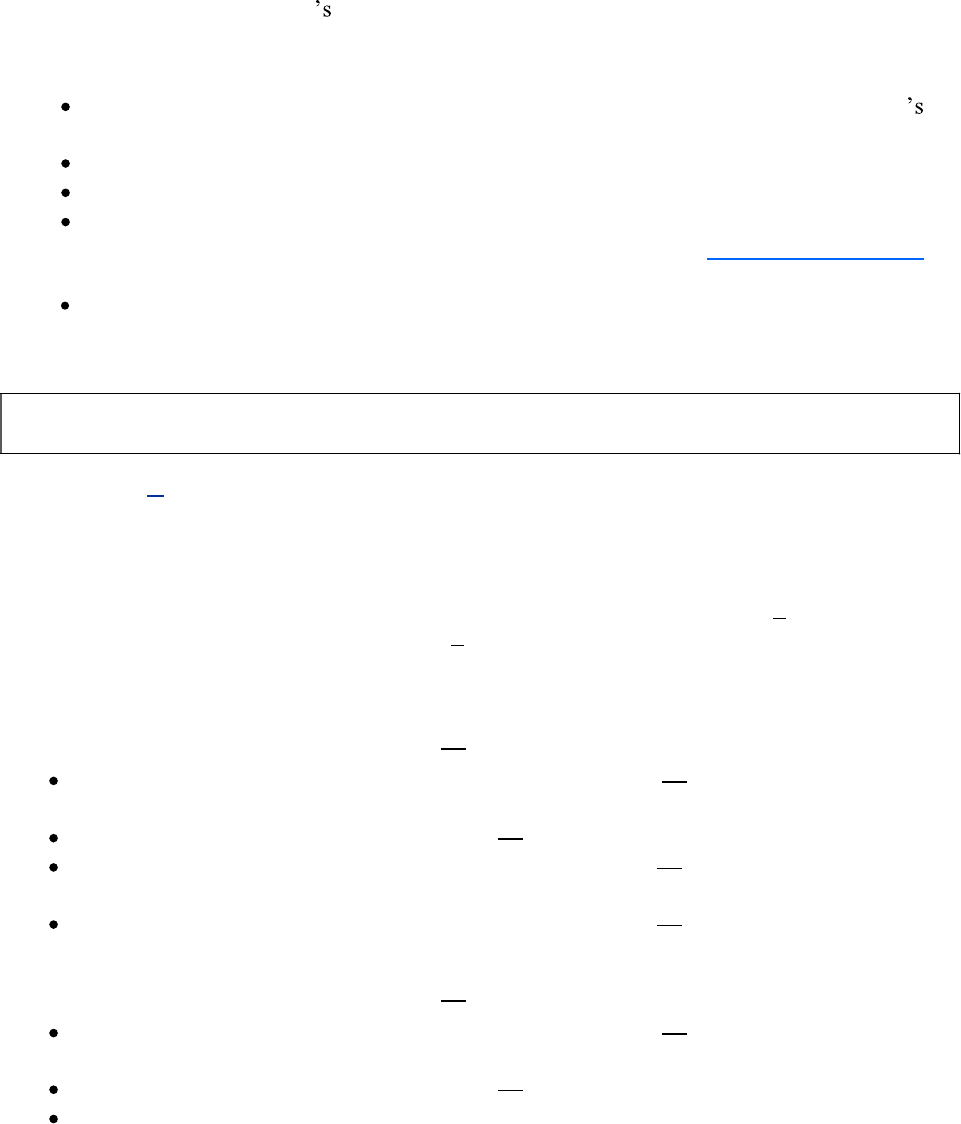
Texas Rising Star Certification Guidelines 16 October 2024
Section 2: Certification Process
Eligibility for Texas Rising Star
Texas Rising Star is a quality-based child care rating system for child care and early learning
programs participating in TWC CCS program.
All programs requesting initial Texas Rising Star certification must:
have an active CCS Provider Agreement with a Board to accept referrals from TWC
CCS program and a current Entry Level designation;
have a permanent (nonexpiring) license or registration from CCR*;
have at least 12 months of licensing history with CCR*;
demonstrate a high level of compliance with CCR minimum standards* over the
preceding six months in accordance with the Texas Rising Star Initial Screening Form;
and
ensure that a center director account is created in the Texas Workforce Registry (WFR)
and that the director encourages their staff members to create individual accounts within
the WFR.
*Programs that are not regulated by CCR but are regulated by the US military and in good
standing are also eligible to request Texas Rising Star certification.
Star-Level Drop Deficiencies
Programs are not eligible to request an initial assessment for Texas Rising Star if any of the
noted deficiencies listed below are cited during the most recent six-month CCR licensing period.
(These deficiencies are also reflected in the Texas Rising Star Screening Form). Additionally, the
program cannot exceed 25 total points of CCR-weighted high- or medium-high deficiencies.
Programs that are currently Texas Rising Star certified will incur a star-level drop for each
deficiency cited during the most recent six-month CCR licensing period. Two-Star certified
programs will be placed on suspension status.
Deficiencies Leading to a Star-Level Drop Centers
745.635: Criminal Convictions or Central Registry Findings Take Appropriate Action
[High]
745.641: Background Checks Requirement Providing Direct Care [High]
746.1201(4): Responsibilities of Employees and Caregivers Ensure No Child Is
Abused, Neglected, or Exploited [High]
746.1201(5): Responsibilities of Employees and Caregivers Report Suspected Child
Abuse, Neglect, or Exploitation [High]
Deficiencies Leading to a Star-Level Drop Homes
745.635: Criminal Convictions or Central Registry Findings Take Appropriate Action
[High]
745.641: Background Checks Requirement Providing Direct Care [High]
747.207(4): Reporting Suspected Abuse, Neglect, or Exploitation [High]

Texas Rising Star Certification Guidelines 17 October 2024
747.1501(a)(3): Responsibility of Caregivers Ensure No Child Is Abused, Neglected, or
Exploited [High]
Deficiencies Leading to a Star-Level Drop School-Age Programs
745.635: Criminal Convictions or Central Registry Findings Take Appropriate Action
[High]
745.641: Background Checks Requirement [High]
744.1201(4): Responsibilities of Employees and Caregivers Ensure No Child Is
Abused, Neglected, or Exploited [High]
744.1201(5): Responsibilities of Employees and Caregivers Report Suspected Child
Abuse, Neglect, or Exploitation [High]
Probation Deficiencies
Programs that are currently Texas Rising Star certified will be placed on a six-month probation
(Probation A) if any noted deficiency is cited during the most recent six-month CCR licensing
period.
Deficiencies Resulting in a Probation Centers
745.621: Background Checks Requirement Submitting Requests [High]
746.1003: Director Responsibilities [(1), (3 6) High]
746.1201(1): Responsibilities of Employees and Caregivers Demonstrate Competency,
Good Judgment, Self-Control [High]
746.1205(a)(4): Responsibilities of Caregivers Supervision of Children [High]
746.1315: First Aid and CPR Requirements [Medium-High]
746.1601: Child/Caregiver Ratios [Medium-High]
746.2805: Prohibited Punishments [High]
746.3805(a): Administering Medication How to Administer Medication [High]
746.3805(b): Administering Medication How to Administer Medication [(2) High; (1),
(3) Medium-High]
Deficiencies Resulting in a Probation Homes
745.621: Background Checks Requirement Submitting Requests [High]
747.207 (1 3), (6 7): Primary Caregivers Responsibilities [(6) High; (1 3), (7) Medium
High]
747.1501(c)(1): Responsibilities of Employees and Caregivers Demonstrate
Competency, Good Judgment, Self-Control [High]
747.1503(a)(4): Responsibilities of Caregivers Supervision of Children [High]
747.1313: First Aid and CPR Training [High]
747.1701 (RCCH)/747.1801 (LCCH): Child/Caregiver Ratios [Medium-High]
747.2705: Prohibited Punishments [High]
747.3605(a): Administering Medication How to Administer Medication [High]
747.3605(b): Administering Medication [(2) High; (1), (3) Medium-High]
747.3501: Safety Areas Free from Hazards [(1 7) Medium-High, (8) High]
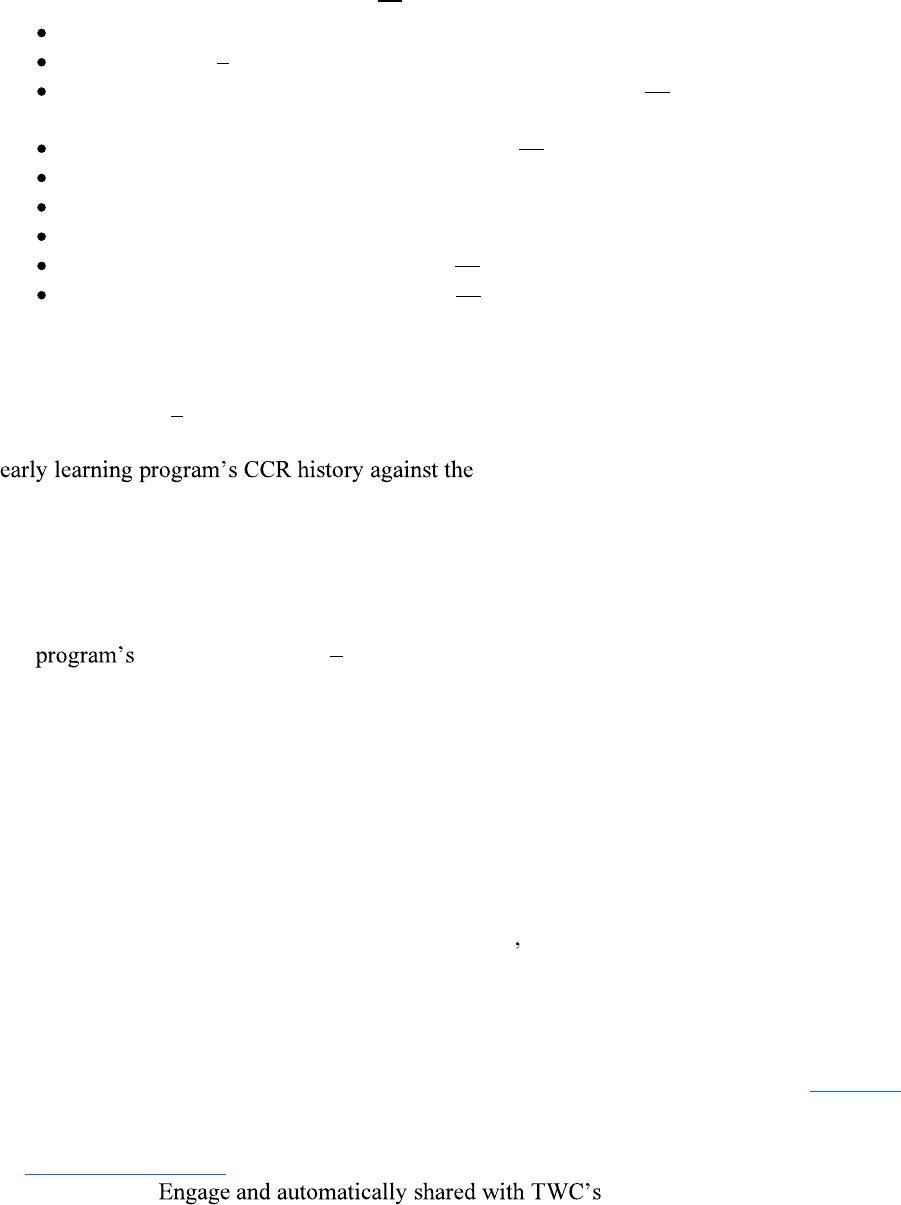
Texas Rising Star Certification Guidelines 18 October 2024
Deficiencies Resulting in a Probation School-Age Programs
745.621: Background Checks Requirement [High]
744.1005(a)(1) (6): Director Responsibilities [Medium-High]
744.1201(1): Responsibilities of Employees and Caregivers Demonstrate Competency,
Good Judgment, Self-Control [High]
744.1205(a)(4): Responsibilities of Caregivers Supervision of Children [High]
744.1315: First Aid and CPR Requirements [Medium-High]
744.1601: Child/Caregiver Ratios [Medium-High]
744.2105: Prohibited Punishment [High]
744.2655(a): Administering Medication How to Administer Medication [High]
744.2655(b): Administering Medication How to Administer Medication [(2) High; (1),
(3) Medium-High]
Ongoing Screening Process for Certified Programs
Texas Rising Star certified programs are expected to maintain a consistent and high level of
compliance with CCR minimum licensing standards. The assessor must review the child care and
Texas Rising Star Screening Form before any
assessment or annual monitoring visit and on a regular basis. An automated daily review will be
conducted for all certified programs within the Texas Rising Star online assessment platform,
CLI Engage. This automated review will notify the assessor of any potential impacts to be
reviewed and determined as applicable.
Assessors must conduct the certification screening process, as results of the screening may affect
the star level (star-level drop deficiencies) or require that the program be placed on
Texas Rising Star probation or suspension status (based on specific deficiencies and/or the total
of high- and/or medium-high-weighted CCR deficiencies). Assessors must share screening
results with mentor staff if it results in the program dropping a star level or needing to be placed
on Texas Rising Star probation or suspension status, as mentor staff may be able to provide
mentoring, training, and resources to assist the program with compliance.
Per CCR, deficiencies are not posted on the website until after the appeals process has been
completed. Once a deficiency is posted on the CCR website, it is considered final, and Texas
Rising Star impacts are applied accordingly at the time of discovery. As a best practice, for initial
assessments, the assessor should screen the program for CCR compliance when the request for
certification is received and again before the program s assessment. For other assessments, the
assessor would also screen the program for CCR compliance again before entering the Texas
Rising Star certification start date into the Texas Rising Star online assessment platform, CLI
Engage.
Additional information regarding impacts of screening form deficiencies is noted in Table 4.1 in
the Guidelines. Any impacts placed on a program will be recorded by the assessor in the CLI
Engage Event Log (as directed) and noted via the Texas Rising Star Impacts Notice form found
in Section 5: Resources. Effective September 1, 2024, the certification status and any impacts are
captured in CLI child care case management
system, Texas Child Care Connection (TX3C).
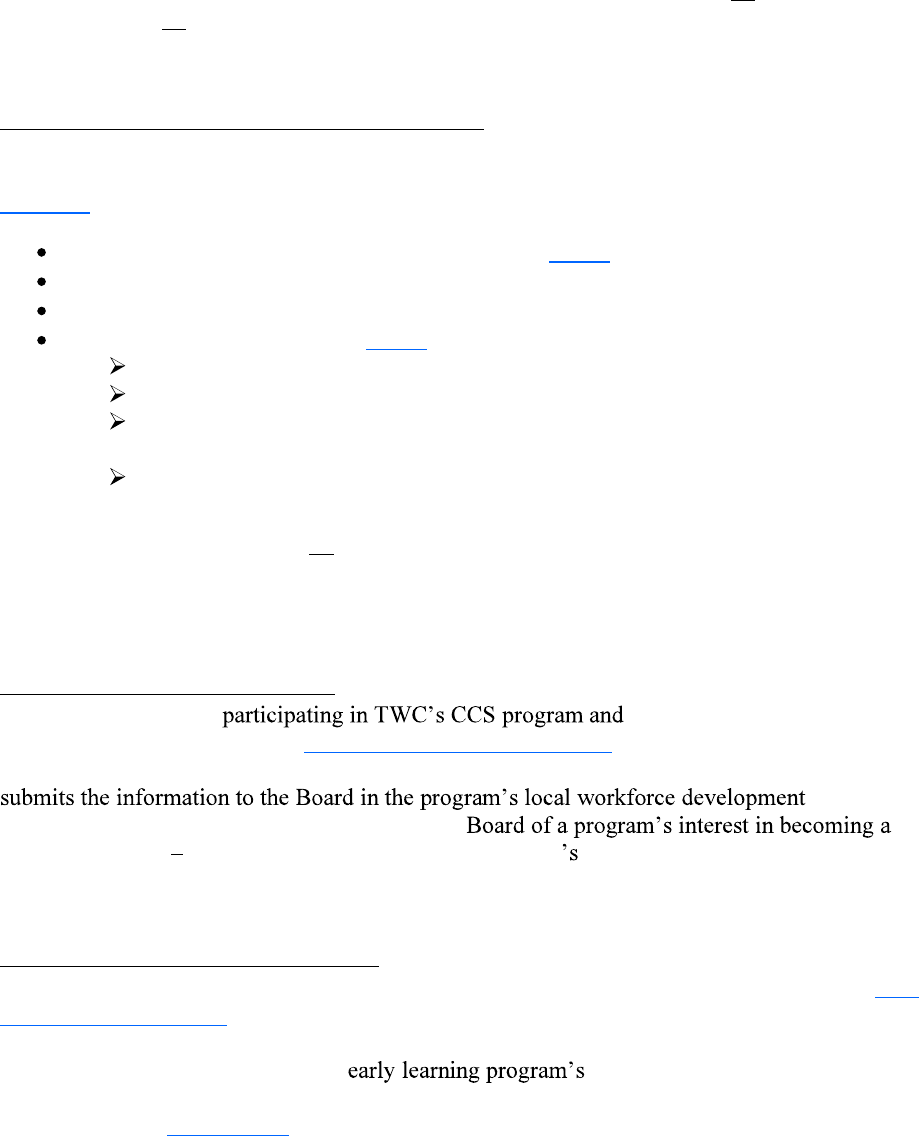
Texas Rising Star Certification Guidelines 19 October 2024
Note: If a specific licensing standard is listed on the screening form, for example, 746.3805(a),
only that specific standard would apply, whereas if whole sections are listed rather than a
specific standard such as 746.2805, any deficiency cited in the whole section would apply.
Texas Rising Star Certification Process
For Programs That Are Not Nationally Accredited
All child care and early learning programs working toward Texas Rising Star certification must
comply with certain requirements, which includes the eligibility requirements described in
§809.131. Additional requirements comprise the following:
Completion of Texas Rising Star orientation (see Step 2)
Creation of and participation in a CQIP
Participation in the Texas Workforce Registry (WFR)
Documentation submittal (see Step 4), including the following:
Completed Texas Rising Star Screening Form (applicable to facility type)
FARF self-assessment (including completed staff worksheet)
Classroom roster document (including classroom name, staff names, and specified
age group for each operating classroom)
Parent Handbook
The high-level steps below outline how a child care and early learning program would move
through the certification process from becoming a CCS Provider through requesting an
assessment for Texas Rising Star certification. All interested programs will be assigned a mentor
once they complete the interest form; the mentor is available to assist the program in moving
through all requirements and steps.
Step 1: Becoming a CCS Provider
Programs interested in achieving Texas Rising Star
certification must complete the Texas Rising Star Interest Form. This online form collects basic
information about the program (for example, facility address and CCR licensing number) and
area (Board
area). Submission of the interest form informs a
Texas Rising Star certified program, initiates the program CLI Engage account creation
through an email invitation from CLI, and starts the certification process. Programs are required
to complete this step prior to entering into a CCS Provider Agreement with their local Board.
Step 2: Attend or Complete Orientation
Texas Rising Star orientation is an online, self-instructional course that is available via the CLI
Engage Course Catalog for early learning programs. The orientation includes an overview of the
Texas Rising Star program certification process, describes the required and points-based
measures on which a child care and quality certification is determined,
and introduces the on-site assessment process through which a program attains Texas Rising Star
certification. Per §809.133(a), all prospective Texas Rising Star child care and early learning
programs must complete Texas Rising Star orientation before submitting their Request for
Certification (described in more detail below). A live orientation session may also be provided
by local Texas Rising Star staff.

Texas Rising Star Certification Guidelines 20 October 2024
Step 3: Conduct a Self-Assessment
A self-assessment or self-evaluation is a way for programs to improve the quality of their
services by reflecting on their own comfort with and expertise in areas known to enhance child
care and early childhood environments and experiences. The purpose of the Texas Rising Star
self-assessment tool is to provide programs with a guided review of their programs in order to
determine if they are ready to proceed with the Texas Rising Star Initial Assessment. The tools
cover all Texas Rising Star required and points-based quality measures that are scored in the
Initial Assessment.
TWC Chapter 809 Child Care Services rule §809.133 requires that programs complete a Texas
Rising Star self-assessment of the FARF. The self-assessment must be submitted with
accompanying documents (see Step 4).
In addition to the FARF, which is required for the self-assessment, programs may opt to submit
the CARF for each classroom in their program. Completing the CARF self-assessment may
clarify whether a program would benefit from additional time and mentoring before the Initial
Assessment. The FARF and the CARF are available on the Texas Rising Star website at Texas
Rising Star Tools.
Programs are encouraged to collaborate with their local Board for mentoring and technical
assistance. Helpful resources are also available on the Digital Resource Collection page of the
Texas Rising Star website.
Tips for Self-Assessment
Read over the self-assessment tools, the FARF, and the age-appropriate CARF
completely before beginning. Have staff read all information, too.
Go back and look at each measure and item individually. Start with one that is
manageable and look for required (met/not met) items these will be shaded gray.
Identify what items are ready for the assessment, what will need to be completed before
the assessment, and what questions should be asked of Texas Rising Star staff in order to
be completely prepared.
Determine what changes or modifications may be needed before having the Texas Rising
Star assessor come for the assessment.
Consult your Texas Rising Star mentor to discuss the results of the self-assessment, ask
questions, and confirm the next step in the assessment process.
Step 4: Request for Certification Assessment
When the child care and early learning program is ready for assessment, the program must
complete the Texas Rising Star Certification Request Form (via the portal) and upload the
certification eligibility packet described below within CLI Engage.
As part of the certification eligibility packet, the program must complete the following
documents for certification. All forms are available on the Texas Rising Star Tools page on the
Texas Rising Star website.
Texas Rising Star Screening Form (applicable to the facility type)
Texas Rising Star FARF self-assessment
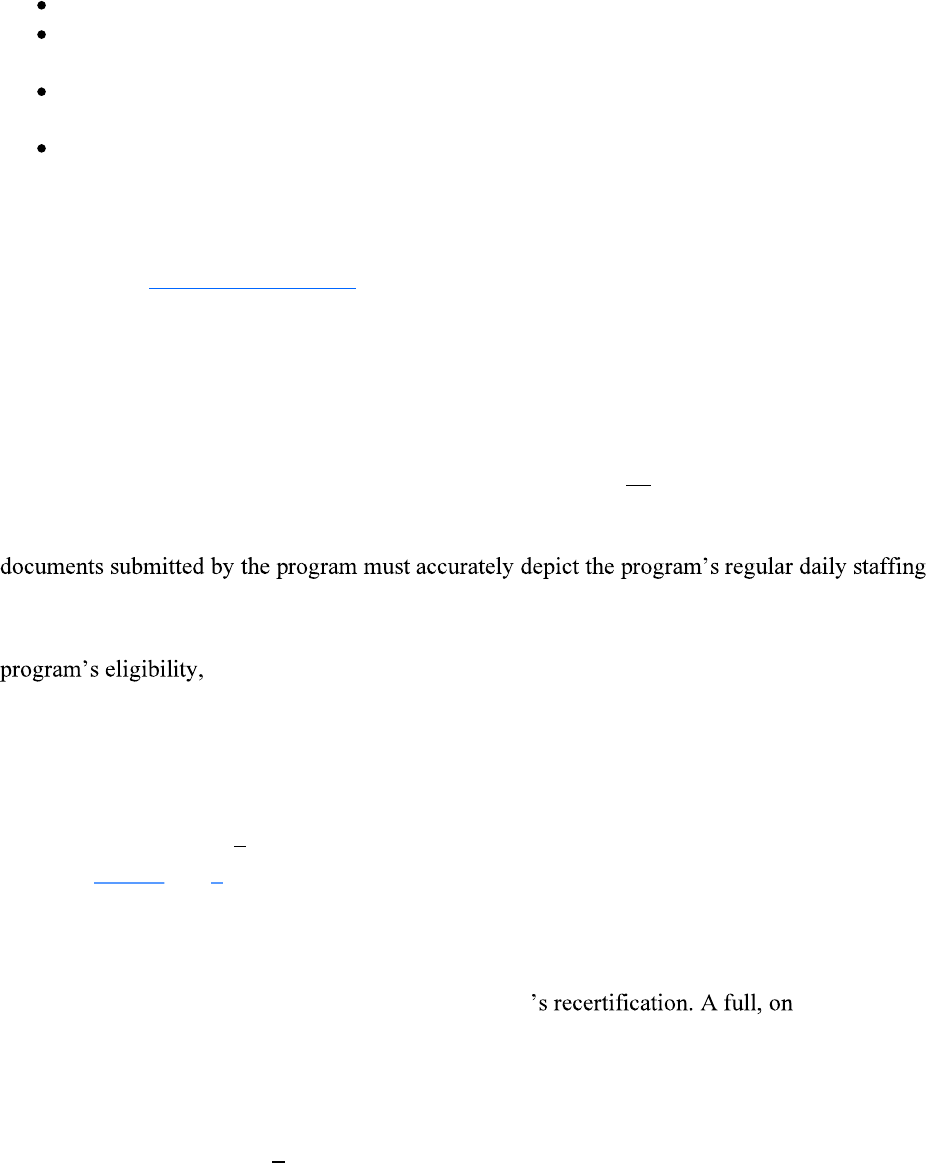
Texas Rising Star Certification Guidelines 21 October 2024
Texas Rising Star CARF for each classroom (optional)
CQIP (created in collaboration with an assigned mentor within CLI Engage or self-
developed by the child care and early learning program)
Classroom roster document (including classroom name, staff names, and specified age
group for each operating classroom)
Parent and Staff Handbook
Finally, the program must collect several additional documents that are used to verify required
and points-based measures for the facility and staff. These documents must be made available
for review prior to (or during) the Initial Assessment. A detailed list of these documents is
included in the FARF (All Facilities).
Two checklists are provided within the FARF. The first refers to measures that are required for
certification. The second refers to points-based measures. Programs are not required to meet all
the points-based measures. If the program does not have the document on the checklist for a
points-based measure, the assessor will score that measure as a zero.
Programs are asked to submit a copy of each checklist with their request for certification as an
attestation that they will have the documents available for review either submitted
electronically via CLI Engage or on-site at the time of assessment. If the program uses the WFR,
the assessor will verify applicable uploaded items electronically through the registry. Any
and classroom composition.
After Texas Rising Star assessor staff receives the applicable documents and confirms the
the CAE will contact the program within 20 calendar days with an
estimated time frame for scheduling the Initial Assessment. Assessors will screen the program
for licensing deficiencies and corrective and/or adverse actions before the Initial Assessment.
Recertification Process
Recertification must occur at or before the end of the three-year Texas Rising Star certification
cycle. Texas Rising Star certified programs undergoing the recertification process must
complete Steps 3 and 4 as described in Texas Rising Star Certification Process.
To ensure that recertification is conducted before the end of the three-year certification cycle,
these materials must be submitted by a child care and early learning program via its CLI Engage
account at least three months before the three-year anniversary of certification. Late submission
of the recertification materials could delay the program -site
recertification assessment is then conducted.
US Department of Defense and Nationally Accredited Early Learning
Programs
US Department of Defense Operated Child Care and Early Learning Programs
Facilities operated and monitored by the US Department of Defense (DoD) are required to meet
high-quality standards established and monitored by DoD. Therefore, DoD-operated facilities
receive Four-Star certification without requiring submittal of a request for certification or an
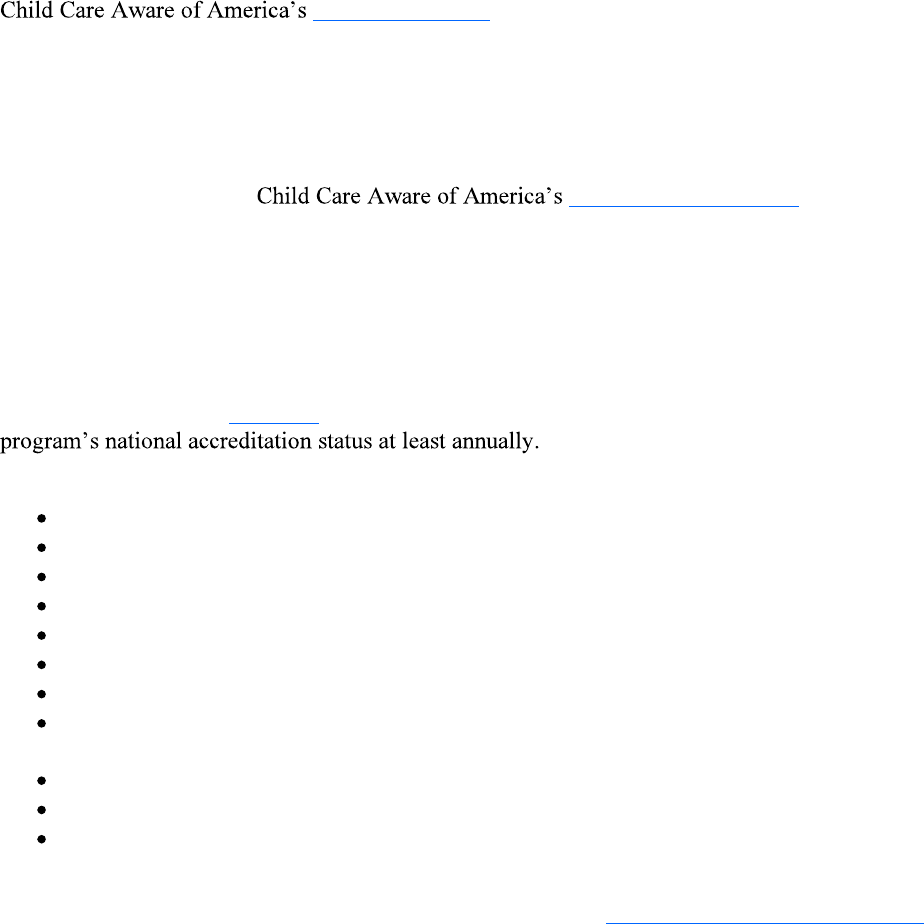
Texas Rising Star Certification Guidelines 22 October 2024
assessment. DoD-operated facilities are not subject to or monitored by CCR and, therefore, are
not subject to the screening process. Additionally, DoD-operated facilities are not subject to the
unannounced annual monitoring visit or the three-year recertification visit. Please note that
programs who participate in the Military Child Care in Your Neighborhood (MCCYN) program
are not considered DoD-operated as they are regulated and monitored by CCR. These programs
are required by the DoD to be nationally accredited and would fall under the guidelines for
TWC-recognized nationally accredited programs. For more information about MCCYN, visit
Military Programs web page.
Effective October 3, 2022, Texas began participation in the MCCYN-Plus program. This
program allows Texas Rising Star Three- and Four-Star programs to participate in the MCCYN-
Plus program. Child care and early learning programs in Texas that have the MCCYN-Plus
designation are not required to be nationally accredited and would fall under the Texas Rising
Star Certification Guidelines for non-nationally accredited programs. For more information
about MCCYN-Plus, visit MCCYN-Plus Initiative web page.
TWC-Recognized National Accreditations
Child care and early learning programs with a TWC-recognized national accreditation will
receive a modified Initial Assessment. These facilities must meet Texas Rising Star eligibility
requirements and are subject to and monitored by CCR and, therefore, are subject to ongoing
screenings of licensing history. Additionally, programs with recognized accreditation are
required to comply with the procedures for the annual monitoring visit and recertification
assessments detailed in Section 3 of these Guidelines. Texas Rising Star staff will also verify a
The following national accreditations are recognized by TWC:
National Association for the Education of Young Children (NAEYC)
National Association for Family Child Care (NAFCC)
National Early Childhood Program Accreditation (NECPA)
National Accreditation Commission for Early Child Care and Education (NAC)
Council of Accreditation (COA)
Cognia
Association of Christian Schools International (ACSI)
Early Head Start and/or Head Start Programs (regulated by CCR offering wraparound
services)
American Montessori Society (AMS)
Association Montessori International/USA (AMI/USA)
Middle States Association (MSA)
National accrediting entities that wish to become recognized by TWC will need to complete the
Texas Rising Star Accreditation Recognition Process. Refer to Section 5: References and Forms
for more information.
Certification Process
TWC-recognized nationally accredited child care and early learning programs wishing to
participate in Texas Rising Star are required to complete and submit the following at initial
assessment and upon recertification:

Texas Rising Star Certification Guidelines 23 October 2024
Texas Rising Star Certification Request Form (via the portal)
Texas Rising Star Screening Form, applicable to the facility type
Copy of current, valid national accreditation certificate
CQIP developed in partnership with a Texas Rising Star mentor or self-developed by the
child care and early learning program
Certification and Recertification Process
Initial Assessment for Nationally Accredited Facilities
Upon receipt of the documents for certification, nationally accredited facilities will receive a
modified Initial Assessment, in which the assessor observes and scores Categories 2 and 4 for all
classrooms. These facilities are subject to and monitored by CCR and, therefore, are subject to
the screening process and annual unannounced monitoring visits.
Recertification for Nationally Accredited Facilities
Recertification must occur on or before the end of the three-year certification cycle. All
nationally accredited programs are required to have a modified recertification assessment on or
before the end of the three-year certification cycle.
At recertification, all accredited programs must complete the steps described in the Texas Rising
Star Certification Process for TWC-recognized nationally accredited facilities.
CLI Engage Free Online Resources for Texas Rising Star Programs
TWC has partnered with CLI at the University of Texas Health Science Center Houston to
provide an online platform CLI Engage for child care and early learning programs pursuing
Texas Rising Star certification and for those that have already attained certification. CLI Engage
offers free professional development tools and resources to improve the quality of child care and
early education that programs provide.
CLI Engage hosts free professional development courses, offers child progress monitoring tools,
and provides a classroom activity collection for Texas Rising Star certified programs and
programs pursuing certification. Program directors can track completion of staff professional
development in language and literacy instruction; science, technology, and engineering
instruction; classroom management; and more. Teachers have access to hundreds of lesson plans
for classroom activities that address key early learning domains and are available in both English
and Spanish. Many activities also include video exemplars to help teachers learn best practices
for implementing lessons. Additionally, teachers have access to age-appropriate child assessment
tools that provide real data to target instruction and monitor child progress over time.
To access CLI Engage resources and tools for Texas Rising Star programs, programs must
register. Programs will be invited via email invitation from CLI or the assigned mentor after
expressing interest in achieving Texas Rising Star. A link in the email invitation will go to the
CLI Engage login screen. After logging in to CLI Engage, the user will be taken to the school
summary page, where information about their program can be reviewed and documents may be
submitted.
Texas Rising Star mentors use program information on CLI Engage to provide targeted technical
assistance. CLI Engage provides a certification management and technical assistance tracking
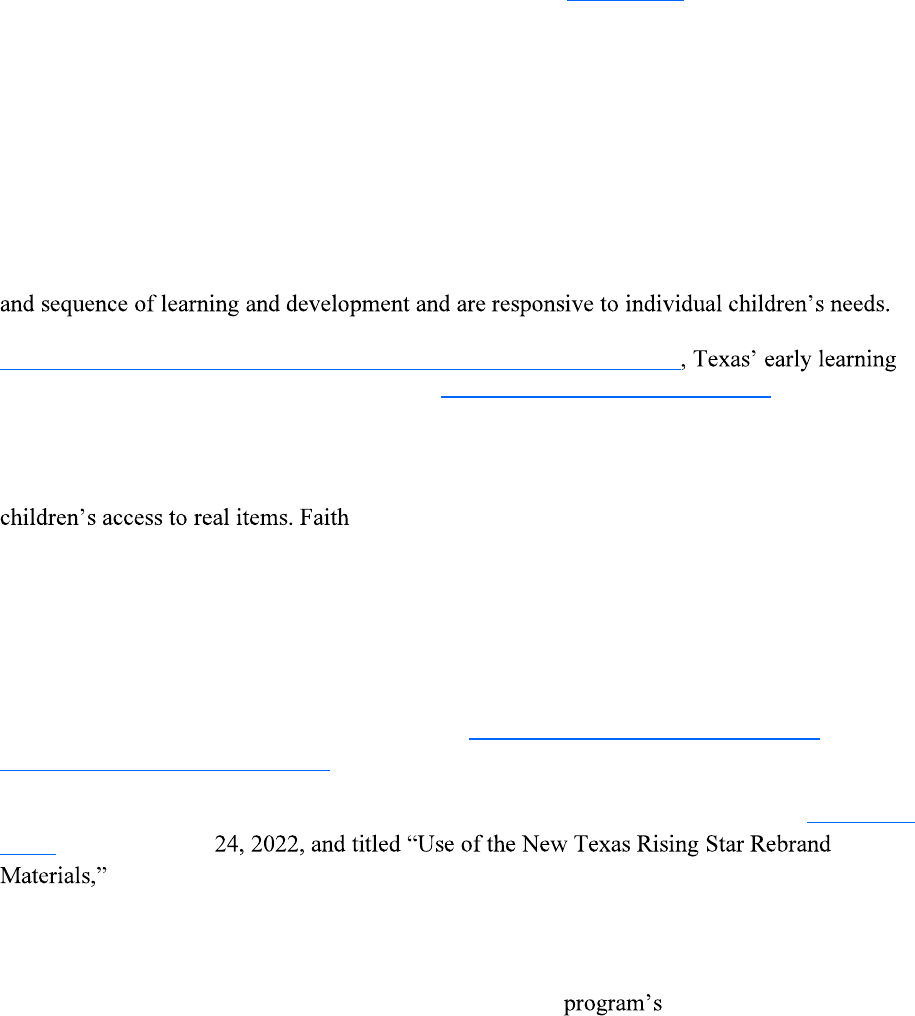
Texas Rising Star Certification Guidelines 24 October 2024
system for Texas Rising Star mentors and assessors. Texas Rising Star assessors use CLI Engage
to capture scores and generate reports on all Texas Rising Star measures after all assessments.
Texas Rising Star mentors use these reports to generate CQIPs through the CLI Engage online
platform.
For more detailed information about CLI Engage, visit the CLI Engage website.
Considerations for Programs Adhering to Specific Early Learning
Philosophies
Many child care and early learning programs follow specific early learning philosophies such as
Montessori, Reggio Emilia, Waldorf, or faith-based philosophies. Texas Rising Star certification
criteria support the participation of such programs.
Programs may have their curriculum reviewed by the CAE to ensure that their curriculum aligns
with developmentally appropriate standards. The CAE will complete the applicable curriculum
checklists (based on age range), which are designed to recognize curricula that follow a scope
More information about scope and sequence of early learning and development is available in the
Texas Infant, Toddler, And Three-Year-Old Early Learning Guidelines
guidelines for infants and toddlers, and in the Texas Prekindergarten Guidelines for three- and
four-year-old children.
Additionally, programs that follow certain philosophies will find that they will earn high scores
in certain categories for their emphasis on diversity, warm and responsive caregiving, and
-based, Reggio Emilia, Waldorf, and Montessori programs
should work with their assigned mentors to understand the scoring methodology and how their
philosophies align with Texas Rising Star.
Logo and Outreach Materials
In 2021, TWC updated the Texas Rising Star logo and rebranded the program with new graphics
and a new color scheme. With this change came revisions to numerous outreach materials
provided by TWC and the Boards, including the Texas Rising Star Program brochure and the
Texas Rising Star Parent brochure.
Boards and early learning programs must comply with the requirements set forth in WD Letter
03-22, issued January
when using the logo for outreach materials. Child care and early learning programs
may use the logo alongside their assessed star-level graphic to indicate their participation and
certification within Texas Rising Star to the community and families they serve. Beginning in
late 2024, all certified programs will be provided a digital toolkit to support their use of the
Texas Rising Star logo and outreaching families about the certification status. Boards
may choose to provide child care and early learning programs with additional outreach materials,
such as banners, posters, or window decals to assist in consumer education and outreach for the
certified programs in their Board areas.
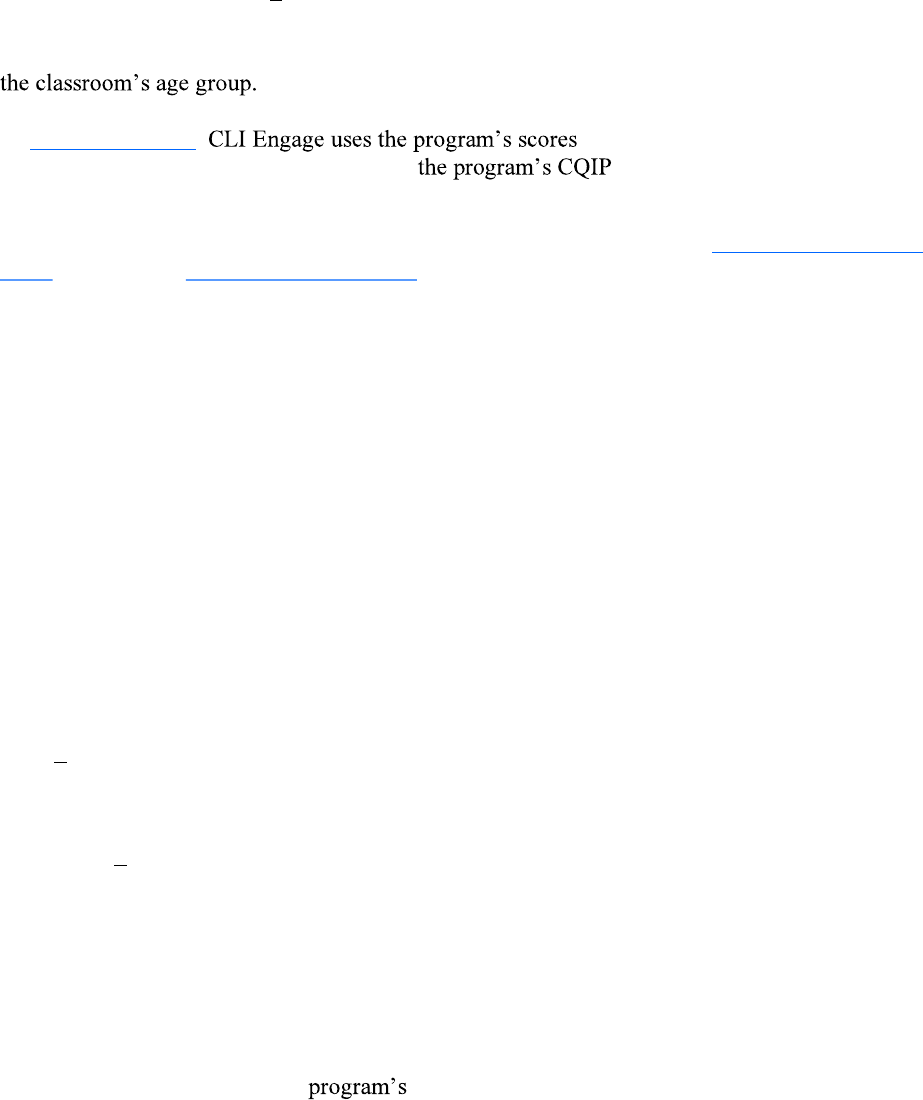
Texas Rising Star Certification Guidelines 25 October 2024
Section 3: Types of Program Assessments
Texas Rising Star requires several types of on-site visits to assess and monitor the ongoing
quality of Texas Rising Star
certified child care and
early learning programs
.
Texas Rising Star
assessors evaluate the program as a whole with the FARF and each classroom with the age-
appropriate CARF by scoring each of the applicable measures specific to the facility type and/or
Certified
programs
must be aware that during any assessment
following an Initial Assessment, if structural measures are not met, the program will be placed
on suspension status. from each assessment to generate
reports that mentors may use to help refine .
All assessments, except the annual monitoring visit and SIA assessment, must be formally
requested by the child care and early learning program through the online Certification Request
Form found on the Texas Rising Star Tools web page.
Except for the required annual monitoring visit, assessors will provide programs with a two-
week window during which an unannounced visit will occur. Programs should work with their
assessor if there are any specific times during the two-week window that would be poor for a
visit (for example, if the majority of the staff is out, classes will be on a field trip, or it is picture
day).
Effective September 1, 2024, the effective date of certification for any assessment will fall on the
first day of the payment period following certification, regardless of when the program was
visited and notified of their results.
Initial Assessment
The Initial Assessment is a full assessment of all Texas Rising Star measures. The assessor
confirms that all required measures, such as written policies, are verified. The assessor assesses
the points-based measures, such as teacher-child interactions and environments, in observation
blocks of one to one-and-a-half hours per classroom. Programs may not become certified with
only structural (required) measures reviewed. This type of assessment is requested by Entry
Level designated programs seeking initial certification and by programs that are returning to
CCS as a certified program. For nationally accredited programs, only Categories 2 and 4 are
assessed for all classrooms.
Entry Level designated programs that are unable to achieve certification after an initial
assessment remain Entry Level and may request a Category Reassessment.
This type of assessment may also be requested by certified programs that are in suspension status
seeking certification.
Annual Monitoring Visit
The annual monitoring visit (annual monitoring) is unannounced and must be conducted before
the yearly anniversary date of a Texas Rising Star certification start date. Programs
will receive two annual monitoring visits during the duration of their three-year certification
period.
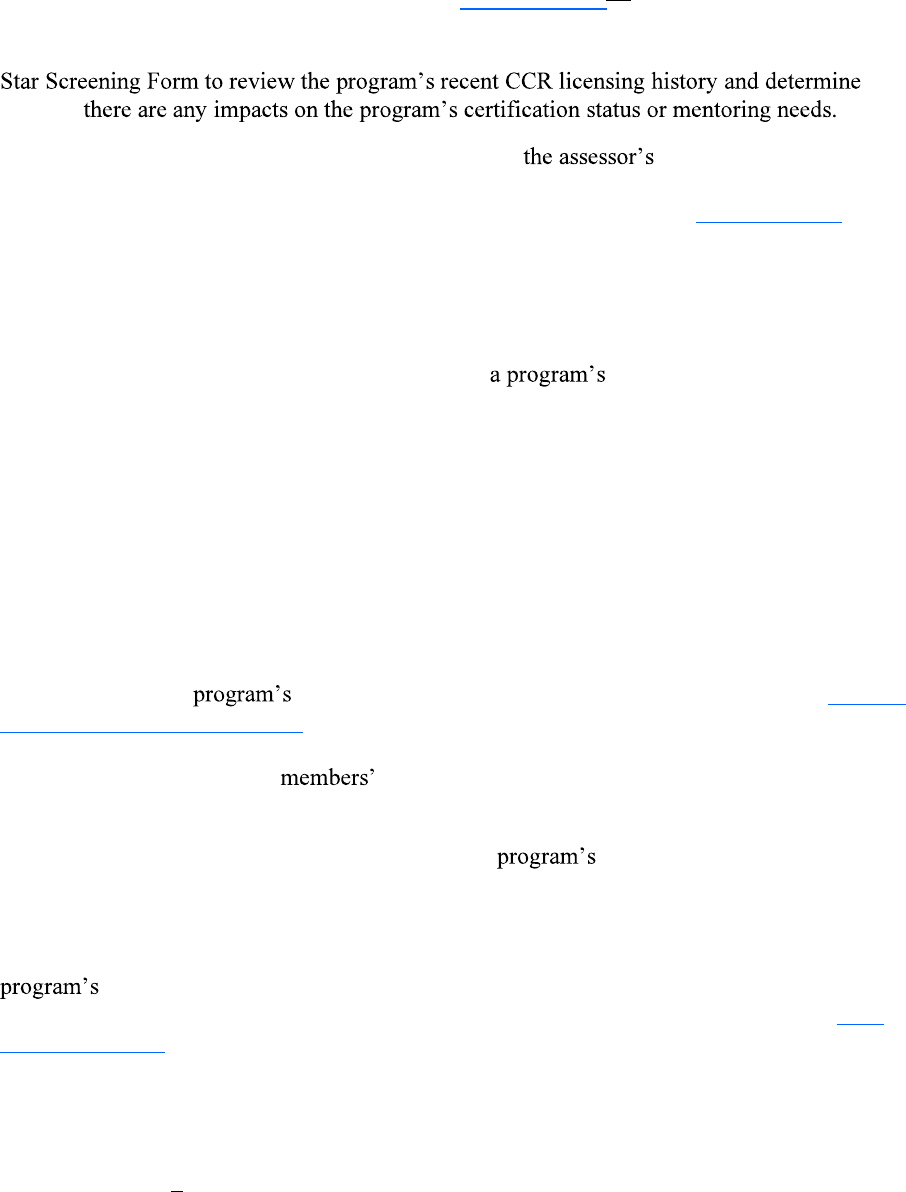
Texas Rising Star Certification Guidelines 26 October 2024
Unannounced annual monitoring is required by §809.133(d)(1) there is no two-week window
for annual monitoring visits, and the timing is at the sole discretion of Texas Rising Star assessor
staff. Before an annual monitoring visit, the assessor will complete the appropriate Texas Rising
whether
If a program declines an annual monitoring visit upon arrival, the assessor informs
the program in writing that an annual monitoring visit is a requirement of Texas Rising Star and
will occur within the next four to six weeks, citing these Guidelines and §809.133(d)(1). In this
correspondence, the assessor also informs the program that failure to comply when the assessor
arrives will result in being placed on suspension status and the program will be required to wait
six months to request a certification assessment.
Classroom Observations
The assessor will observe and assess 50 percent of classrooms, including at least one
classroom for each age group and any new classrooms added since the previous visit. Newly
added classrooms and classrooms in which the teacher has changed will be prioritized for
observations.
The assessor will spend at least one hour in each observed classroom during annual monitoring
visits. The assessor may observe for an additional 30 minutes in a classroom to ensure all
measures can be scored accurately.
Director and Staff Training and Qualifications
During the annual monitoring, the assessor reviews all staff files. If, during the on-site visit, the
assessor discovers that a change in director occurred and the current director does not meet the
requirements of the current star level, then the program will be placed on a Service
Improvement Agreement (SIA) for six months to assist the program with retaining the current
star level. Additionally, the same process would occur for programs that had staff turnover
between visits. All new staff qualifications are reviewed and scored as applicable.
Results of the Annual Monitoring Visit
Results of the annual monitoring will not affect the star-level certification. Rather, the
scores are used to develop a CQIP (or an SIA, as applicable) to help the program maintain or
increase its star level.
An annual monitoring can also result in the observation of significant improvements in a
quality of care. In these cases, Texas Rising Star staff will work with the director to
determine whether a future full assessment to increase the star level is appropriate (see Star-
Level Evaluation in this section).
Recertification Assessment
Texas Rising Star certification lasts three years. The Recertification Assessment will occur no
later than three years to the month of the previous full-site assessment and certification for any
Texas Rising Star certified program.
Except for programs with TWC-recognized national accreditation, the recertification assessment
requires that 100 percent of classrooms are assessed, all required measures are verified, and all
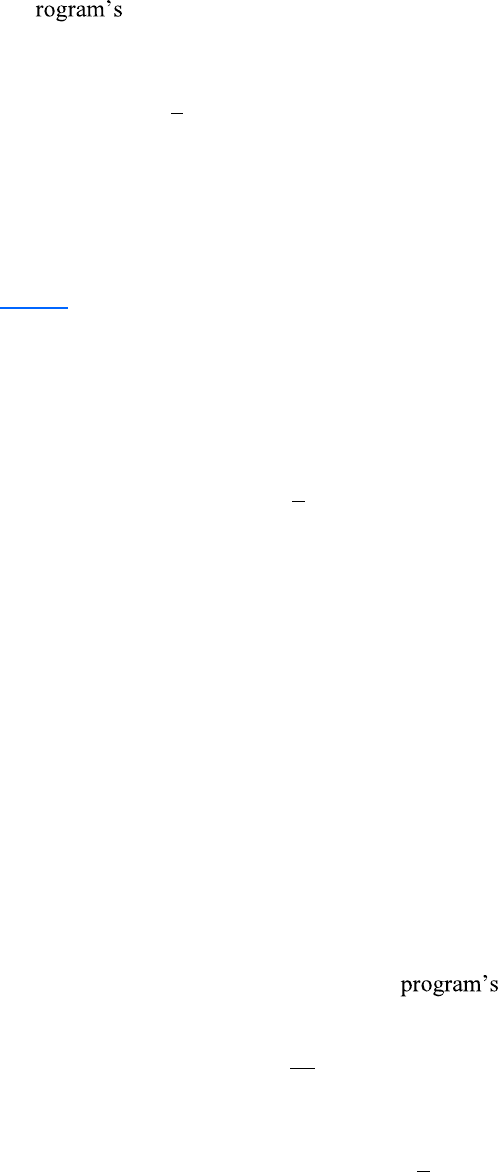
Texas Rising Star Certification Guidelines 27 October 2024
points-based measures are scored for all categories. For nationally accredited programs, all
classrooms are assessed for Categories 2 and 4 only.
A p star level before the Recertification Assessment does not affect the assessment
result; programs may lose, gain, or maintain a star level as a result of the Recertification
Assessment.
Texas Rising Star certified programs are responsible for submitting a Texas Rising Star
recertification request through the online Certification Request Form, and uploading the
completed Texas Rising Star Screening Form, the FARF self-assessment, and additional required
documents (such as parent and staff handbooks or a classroom roster) no later than three months
before the three-year anniversary from the Texas Rising Star certification end date.
The recertification process slightly differs for nationally accredited facilities. Please see the
section specific to these programs for more information.
Star-Level Evaluation
Texas Rising Star Two- and Three-Star programs may make significant improvements across
Texas Rising Star measures that could result in a higher star-level certification upon
reassessment. In these cases, the program may request a Star-Level Evaluation to determine the
new star-level certification. Star-Level Evaluations are conducted upon mutual agreement
between the Texas Rising Star certified program and the mentor and may occur at any time.
Star-Level Evaluations are full assessments of all classrooms, categories, and applicable
measures.
Because the Star-Level Evaluation is a full assessment, the three-year recertification cycle resets
to the date of the Star-Level Evaluation (that is, the date of the Initial Assessment is no longer
used to determine the recertification date), regardless of the star level resulting from the Star-
Level Evaluation.
This type of assessment may be requested by certified Two- or Three-Star programs seeking a
higher star level.
Note: Nationally accredited programs may request a Star-Level Evaluation, which will include
assessing all classrooms for Categories 2 and 4.
Category Reassessment
After any full assessment such as an Initial, Recertification or Star-Level Evaluation, programs
may request, within 30 days from the Texas Rising Star certification effective date, that a
reassessment of not more than two of the lowest-rated categories be conducted
without requiring a reassessment of the other categories. If a program requesting a reassessment
of the lowest-rated category or categories has experienced a change of director or staff within the
three months, then Category 1 Director and Staff Qualifications must also be reassessed.
Reassessments for programs under this provision will be completed within 60 days of the
request. Only one Category Reassessment can be requested per full assessment.
For nationally accredited Texas Rising Star certified programs, a Category Reassessment may
be requested following the same protocols detailed above; however, only one category is chosen

Texas Rising Star Certification Guidelines 28 October 2024
for reassessment either Category 2 or 4. Changes in director or staff will not require assessment
of Category 1: Director and Staff Qualifications for nationally accredited programs.
This type of assessment may be requested by a program who has recently received a full
assessment, regardless of certification status, and has 1 2 categories that scored poorly.
Note: A Texas Rising Star certified program that is on Texas Rising Star probation or has had a
loss of a star level due to licensing violations is not eligible for a Category Reassessment.
Facility Changes
There are varying types of changes a child care and early learning program may go through
while being Texas Rising Star certified. These changes may affect the type of care that is being
provided, requiring action by the Board and/or assessor.
Facility expansions are defined as a facility continuing to operate at an existing location
with the existing classrooms and age groups served, while the owner/program opens a
new facility within the same city, ZIP code, or county to expand and add classrooms or
age groups served.
Facility splits are defined as a facility continuing to operate at an existing location while
the owner/program opens a new facility within the same city, ZIP code, or county and
moves a subset of the staff and the children served to the new facility. A facility split also
involves a modification of the current classroom structure and staffing.
Facility moves are defined as a facility closing and relocating to a new location within
the same city, ZIP code, or county in which the program is currently operating. A facility
move does not alter the current composition of director or staff but may involve an
increase in capacity or age groups served.
Facility-type changes are defined as a program changing facility type (for example,
changing from a registered child care home to a licensed child care home). A facility-type
change may alter the current composition of director or staff and may involve an increase
in capacity or age groups served.
Facility ownership changes are defined as a program changing owners, which may alter
the current composition of staff or current policies and procedures.
When a facility incurs one of the noted facility changes above, it must notify CCR and may
initiate a new CCR facility application and obtain a new license number from CCR. The facility
may or may not carry its licensing history with it to the new license number.
A Texas Rising Star certified program that experiences any one of these changes (expansion,
split, facility type, changes in ownership, or a move to a new location within the same city, ZIP
code, or county in which the program is currently operating) does not need to have 12 months of
CCR history in this situation in order to retain its star level during the move or change, regardless
of permit type issued (full or initial). The program will undergo a Texas Rising Star reassessment
per the Facility Change Rubric within the initial three-month period from either the date the new
CCR permit associated with the change is issued or the date the change occurred if a new permit
is not issued.
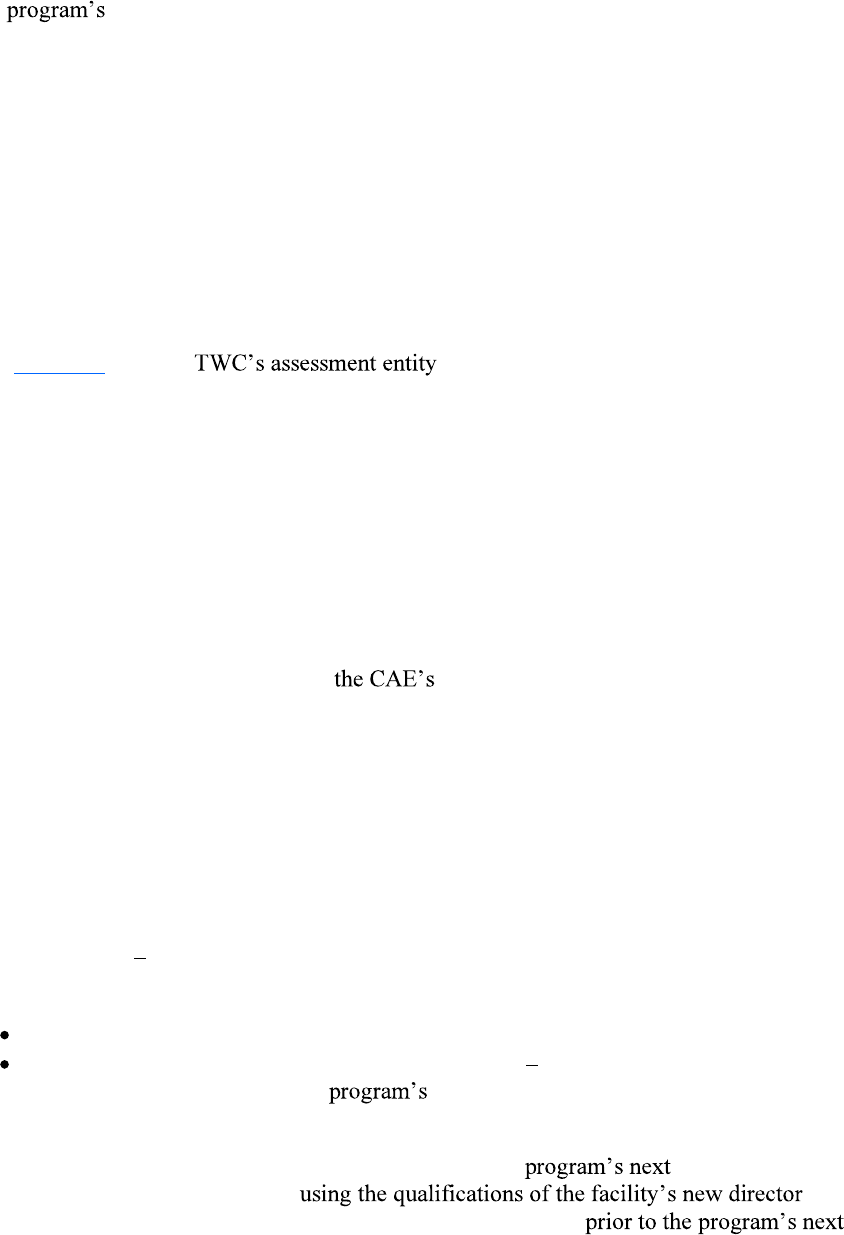
Texas Rising Star Certification Guidelines 29 October 2024
The new Texas Rising Star level will be based on the results of the reassessment. The
CCR history that is available under the permit before the change will be used when completing
the Texas Rising Star Screening Form for these assessments, if applicable.
Any program that receives an initial permit due to a facility change must receive a permanent
(full) permit within six months of the change, otherwise the program will be placed on
suspension status.
A certified program must submit this type of assessment request once the new permit has been
issued or the change has occurred if no new permit is issued. Programs that undergo a name
change only are not subject to reassessment.
Reconsideration
Rule §809.135 requires , the CAE, to ensure a process for
reconsideration of facility assessment, as the Texas Rising Star program is not subject to TWC
Chapter 823 Integrated Complaints, Hearings, and Appeals rules.
A reconsideration may be requested by a program that feels that their assessment was inaccurate
or unfairly conducted. The reconsideration process may include scheduling a second assessment
with the same assessor, a second visit with two assessors, or an assessment with a different
assessor. The reconsideration may also involve a reassessment of a category and/or measure as
requested by the program. In responding to a reconsideration request from a program, Boards
may make additional mentoring services available to assist programs in meeting Texas Rising
Star standards.
Boards must make programs aware of policies regarding the reconsideration process,
time restrictions on requesting a reconsideration, the number of reconsiderations allowed, and the
elements eligible for reconsideration.
A reconsideration assessment may be requested after any assessment, including annual
monitoring visits. When requesting this assessment, a child care and early learning program must
provide specific details of which items are being requested for reconsideration (such as specific
measures, specific categories, or the whole assessment).
Director and Staff Changes
Texas Rising Star certified programs should report to Texas Rising Star mentor staff when there
is:
a change of director; or
staff turnover that may cause the Texas Rising Star certified program to fall below its
current star level based on the completion of the Staff Qualifications and
Training section of the FARF.
Staff positions that have changed will be reassessed at the annual monitoring or
next Texas Rising Star assessment and/or
staff. New directors are required to meet the CQIP requirements
annual monitoring or next Texas Rising Star assessment. The new director and mentor should
work together to ensure understanding and participation in CQIP.
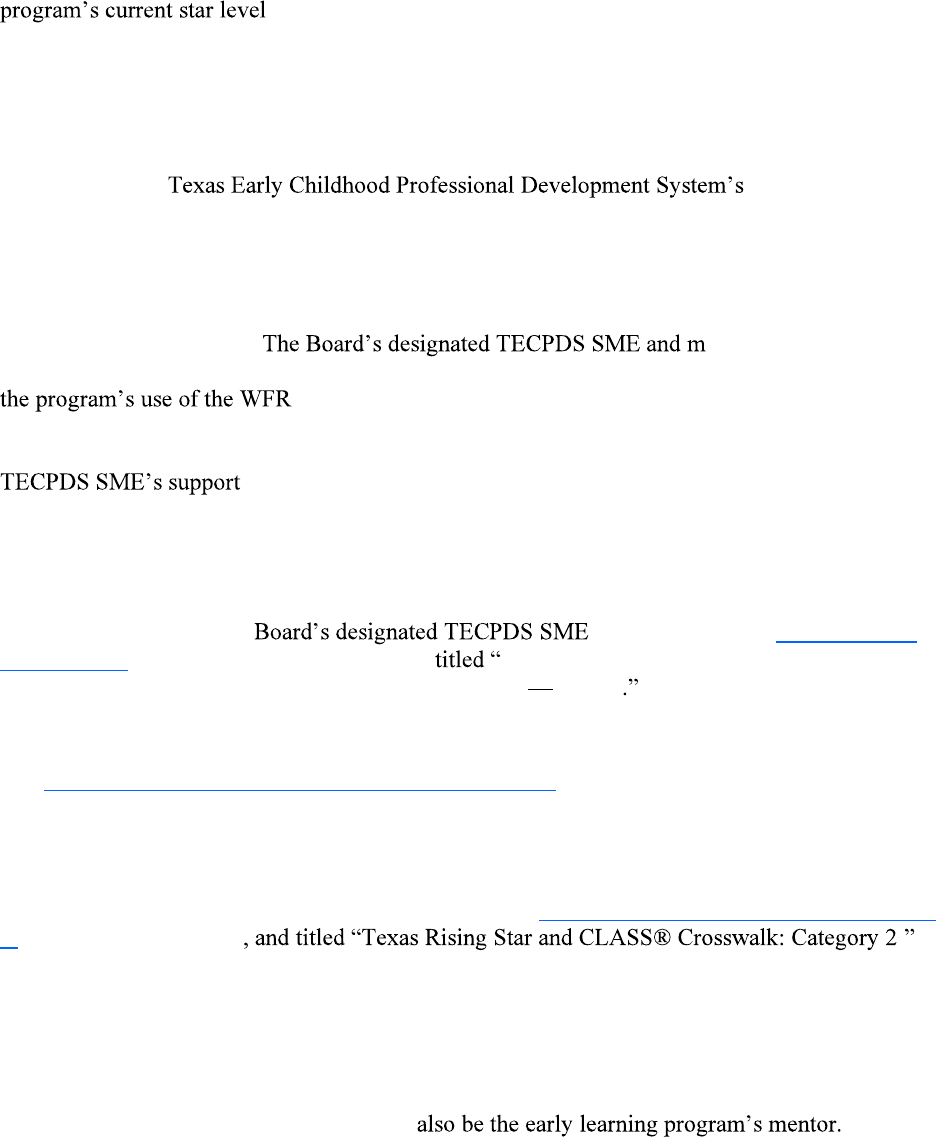
Texas Rising Star Certification Guidelines 30 October 2024
If the change in director or staff results in the program not meeting the requirements of the
after an annual monitoring visit, the program will be placed on an
SIA for six months to provide time for the program to address the shortfall and retain its star
level.
Texas Workforce Registry
Child care and early learning programs participating in Texas Rising Star are expected to
participate in the (TECPDS) WFR.
The WFR is an online system in which early childhood professionals can store and access their
education and employment history, as well as the training hours they have completed.
During the certification process for Texas Rising Star, Board-designated TECPDS subject matter
experts (SMEs) and mentors are available to assist programs and their staff in entering staff
information into the WFR. entors will provide
ongoing support to encourage and support programs to use the WFR, and assessors will review
at the initial assessment, each annual monitoring, and any
subsequent assessment visits. Programs that elect not to receive mentoring services are still
required to have their center director account established within the WFR and can receive the
.
If a program fails to use the WFR and to encourage staff to use it, the TECPDS SME or mentor
may provide technical assistance and work with the program to include use of the WFR in its
CQIP.
More information about a is provided within WD Letter 10-
23, Change 1, issued February 15, 2024, and Texas Early Childhood Professional
Development System Board Training and Participation Update
CLASS® Option for Category 2 Observations
The CLASS® (Classroom Assessment Scoring System®) is a program-quality assessment and
professional development system for measuring and improving teacher-child interactions.
While the CLASS® assessment tool does not measure the identical teacher-child interactions
that Texas Rising Star measures, it is an evidence-based tool that examines substantially similar
items. A crosswalk of this alignment is provided within WD Letter 06-22, Change 1, Attachment
1, issued March 18, 2022 .
If an early learning program has received a CLASS® assessment for each classroom within the
most recent 12 months, the results of those assessments may be replaced for the observation and
scoring each classroom receives for Category 2: Teacher-Child Interactions.
The CLASS® observation must be completed within the most recent 12 months of the Texas
Rising Star assessment or annual monitoring visit by a certified CLASS® evaluator for that age
group and the CLASS® evaluator may not
If the early learning program chooses to have its CLASS® scores replace its Texas Rising Star
Category 2 scores, the program will upload those scores into CLI Engage and the assessor will

Texas Rising Star Certification Guidelines 31 October 2024
enter those scores into the applicable assessment per the CLI Engage User Guide. The following
table indicates how the CLASS® scoring is aligned with Texas Rising Star scoring:
CLASS® Scoring
Texas Rising Star Score
for Category 2
LOW Score of 1 2 LOW Score of 0 1
MID Score of 3 5 MID Score of 2
HIGH Score of 6 7 HIGH Score of 3
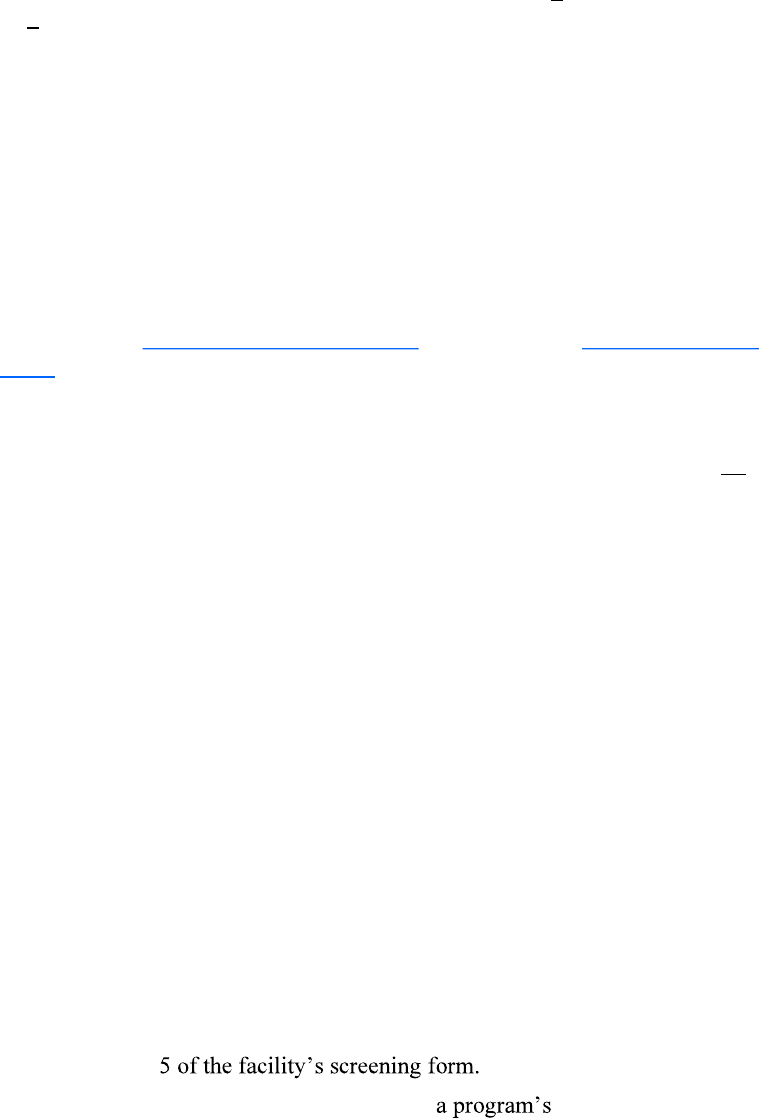
Texas Rising Star Certification Guidelines 32 October 2024
Section 4: Continuous Quality Improvement
Texas Rising Star provides professional development resources and mentoring to sustain and
improve the quality of child care and early learning in Texas Rising Star certified facilities.
Texas Rising Star certified programs have access to three types of technical assistance: CQIPs,
SIAs, and targeted assistance for programs on Texas Rising Star screening impacts, to include
probation or suspension status. The three types of assistance are summarized below.
Continuous Quality Improvement Plans
Why? Generated upon initial interest in achieving Texas Rising Star certification as well
as from scores on Texas Rising Star measures from any certification assessment,
CQIPs provide a road map for continued quality improvement.
How? CQIPs are targeted toward Texas Rising Star measures that, via collaboration, the
mentor/program believe will help the program maintain or improve its star level.
Programs choosing to not participate in mentoring services must create their
CQIPs per the Self-Developed CQIP Guide available on the Texas Rising Star
Tools tab on the Texas Rising Star website.
How long? CQIPs are required, ongoing, and continually updated based on mentor
recommendations and program goals.
Results? CQIPs may determine the decision for a Star-Level Evaluation Assessment a
full assessment that may be requested if the program and mentor believe that the
program is ready to move to a higher star level.
Service Improvement Agreements
Why? SIAs go into effect when a program fails to maintain its certified star level at the
annual monitoring visit. SIAs give programs an opportunity to receive mentoring
and supports before potentially losing a star level of Texas Rising Star
certification at the next recertification assessment.
How? Technical assistance is available via the mentor, documented within the CQIP,
and targeted toward the Texas Rising Star categories that led to the SIA.
How long? SIAs last a mandatory six months.
Results? To determine the new star level, an SIA assessment for all classrooms will be
conducted within 30 days of the SIA end date for the Texas Rising Star categories
found deficient. Programs with SIA assessments that result in a lower star level
will have the opportunity to revise their CQIPs with goals focused on increasing
the star level.
Targeted Assistance for Texas Rising Star Screening Impacts
Why? Child care and early learning programs are placed on a screening impact, such as
a star level drop, probation or suspension status based on results within Sections 2
through Section
How? Targeted technical assistance is available via mentor and documented
within its CQIP to address CCR licensing deficiencies.
How long? Probations, suspensions, and star-level drops last a mandatory six months.
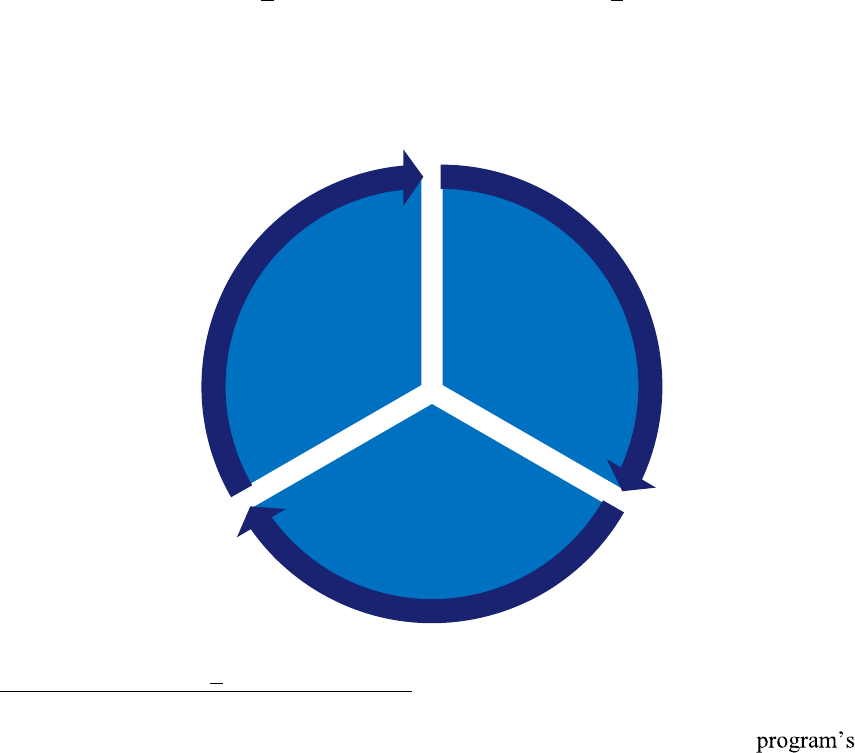
Texas Rising Star Certification Guidelines 33 October 2024
Results? If a program is cited for additional CCR deficiencies within a six-month impact, it
will receive additional impacts related to its current status (which may include
being placed on a second consecutive probation with a concurrent star-level drop
impact), be placed on suspension status, or receive an extension of suspension
status.
Continuous Quality Improvement
Continuous Quality Improvement (CQI) provides a systemic and intentional process for
improving quality in child care and early learning programs and increasing positive outcomes for
children. Texas Rising Star certified programs and Entry Level designated programs have the
ability to work closely with a Texas Rising Star mentor to engage in a cyclical process that
includes self-reflection, continuous learning, practice, and evaluation. CQI helps programs attain
certification, achieve increasingly higher levels of quality, sustain high quality over time, and
ensure high quality across classrooms and age groups.
For Texas Rising Star Certified Programs
CQIPs are designed to assist programs with increasing the quality of the child care and early
learning experiences they provide with the goal of maintaining or increasing a star
level. A CQIP contains improvement goals for a targeted number of Texas Rising Star measures
and/or categories, as well as resources to help reach those improvement goals, including
professional development coursework, coaching from a Texas Rising Star mentor, and
identification of other available resources and training material.
CQIPs can also address key areas for improvement that are not directly measured by Texas
Rising Star, but are still important indicators of quality, such as implementing inclusive
caregiving practices, working with English language learners, and developing policies to prevent
suspension and expulsion. Mentors may work with programs to determine their specific needs
and the best goals to incorporate in the CQIP over time. Mentors may provide direct support to
Evaluate
& Reflect
Continously
Learn
Practice
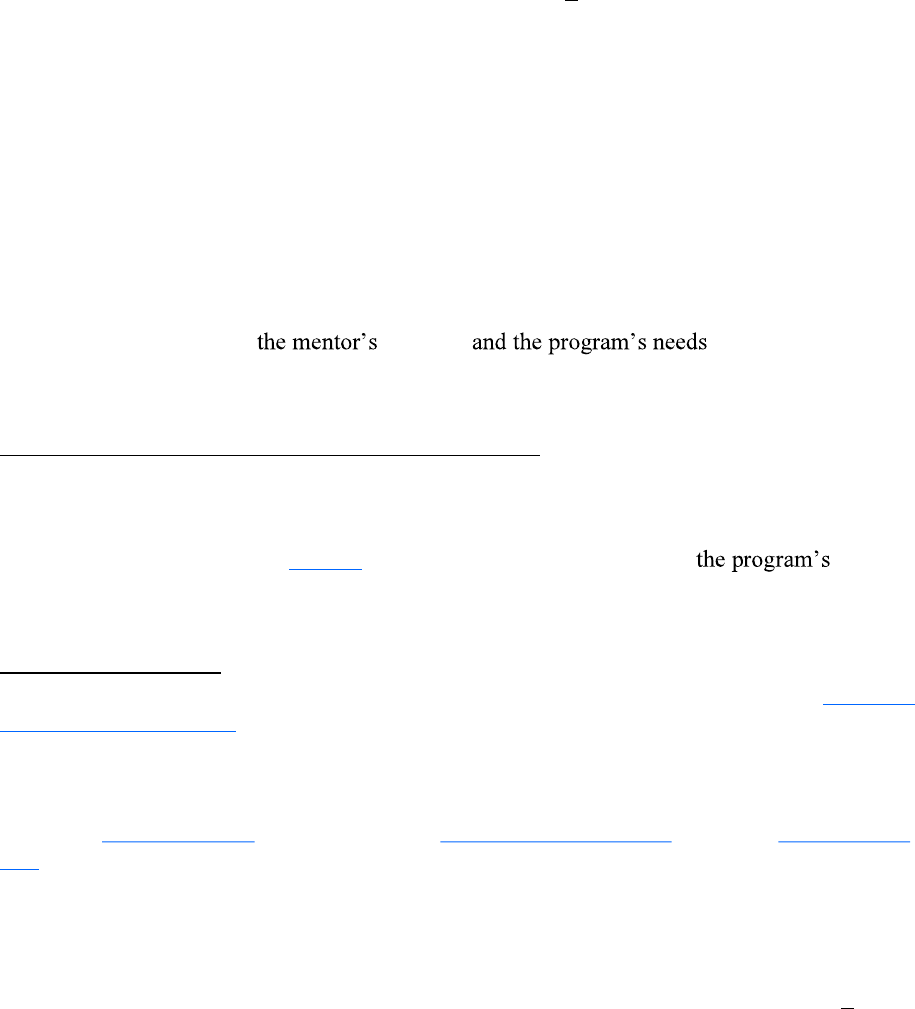
Texas Rising Star Certification Guidelines 34 October 2024
help programs meet their goals or they may help identify and access appropriate resources to
support improvement efforts. Mentors and programs may work together to reach an agreement
on what goals and strategies are included in the CQIP.
CQIPs for Texas Rising Star child care and early learning programs are developed upon initial
acknowledgment of desire to participate in Texas Rising Star and again after the first full
assessment. CQIPs may be further refined during annual visits with the assistance of the mentor.
Additional technical assistance plans for Texas Rising Star certified programs are automatically
generated after each assessment for each classroom and the facility as a whole and may be used
to further refine the CQIP. Participation in a CQIP is required.
A set of professional development resources is available to Texas Rising Star child care and
early learning programs, including many hours of online learning modules featuring extensive
video-based demonstrations of effective instructional practices for responsive interaction,
language and literacy, mathematics, and science. Through the CQIP, mentors may recommend
specific courses for Texas Rising Star child care and early learning programs and their teachers
to complete depending on their quality improvement needs.
Mentors will be provided to work with directors and their staff on all Texas Rising Star
measures, both points-based and structural. The amount of time a mentor spends on-site at the
facility will vary based on caseload . At a minimum, the
mentor will visit the program once a month, either in person or through a scheduled call or
virtual meeting.
For Programs Not Currently Texas Rising Star Certified
Child care and early learning programs that are not yet eligible for Texas Rising Star certification
or that may not be ready to request an assessment may still participate in technical assistance
provided by their local Board and/or assigned mentor. Some professional development resources
are available through the CLI website. Contact the appropriate Board or assigned
mentor for more information. At a minimum, the mentor will visit the program once a month,
either in person or through a scheduled call or virtual meeting.
Self-Developed CQIPs
Each child care and early learning program is assigned a mentor upon initial interest (Step 1 of
the Certification Process); however, programs may elect to move through the Texas Rising Star
certification and maintenance process without a mentor. The program is still responsible for
meeting all eligibility, CQIP, and ongoing requirements (annual monitoring visits and
recertification, including updated CQIPs). To assist these programs in creating a self-developed
CQIP, the CQIP Desk Aid is available on the Texas Rising Star Tools tab on the Texas Rising
Star website. The self-developed CQIP must be submitted with the Certification Request
documents and updated at Recertification, as needed or applicable. Mentors will still be available
to provide resources and supports.
Service Improvement Agreement
Texas Rising Star assessors conduct annual monitoring to ensure that Texas Rising Star certified
programs are maintaining the level of quality that is reflected in their current star-level
certification. If an assessor finds that a program is unable to maintain certified (calculated) star
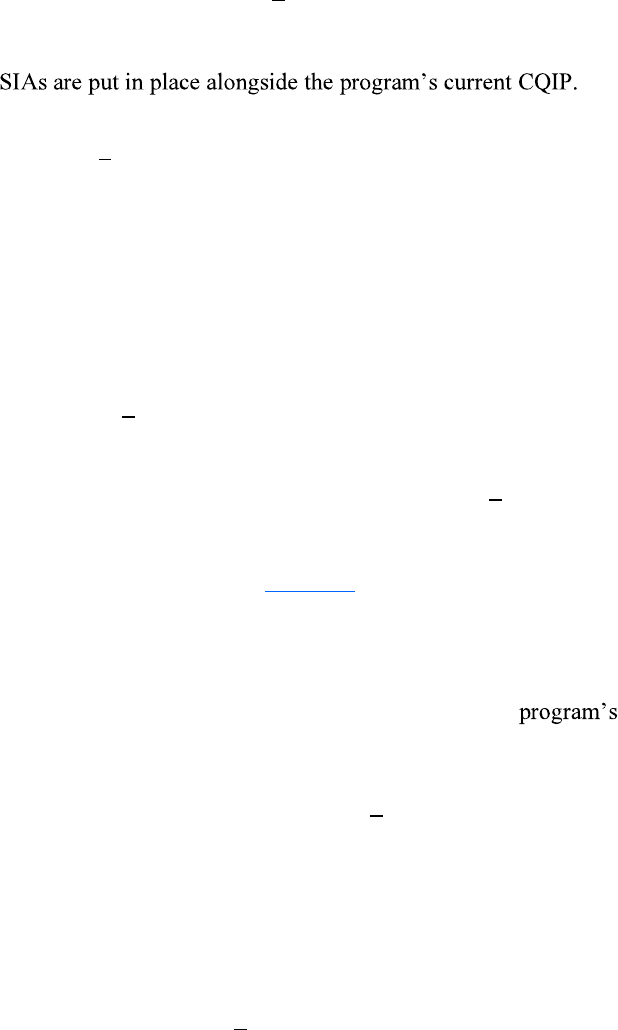
Texas Rising Star Certification Guidelines 35 October 2024
level during these visits, an SIA will go into effect. SIAs are six-month mandatory agreements
designed to assist Texas Rising Star certified programs in maintaining their current star level.
Technical assistance through the SIA focuses on the Texas Rising Star categories that resulted in
a lower overall calculated star level during annual monitoring (not necessarily a lower category
score). For self-developed CQIPS,
the program will be required to provide an updated CQIP to address this impact.
Texas Rising Star certified programs retain their current star level while on an SIA. After the
six-month SIA, an assessment of the categories originally observed as deficient is conducted for
all classrooms/staff, as applicable to the category. If deficiencies persist, a new star level will be
determined, based on the observations at the end of the SIA assessment. SIA assessments may
yield a higher or lower star level and are not considered a full assessment unless all categories
are assessed. This type of assessment is not requested by the program and will occur within 30
days of the end of the SIA six-month period.
Texas Rising Star Probation
A Texas Rising Star certified program may be put on Texas Rising Star probation for six months
based on licensing deficiencies incurred. Probation A is assigned when the program is cited for
any one of the noted licensing deficiencies within Section 4 of the certified screening form.
Probation B is assigned when the program has incurred 26 40 total points (when reviewing CCR
licensing deficiencies weighted high and/or medium-high cited within the most recent six-month
period). Incurring 41 or more total points will result in a loss of Texas Rising Star certification
and CCS Provider Agreement; see §809.132.
During either type of probation, a program may receive technical assistance (as noted in its
CQIP) from its assigned mentor to assist with licensing issues, as appropriate. Texas Rising Star
staff members are not trained by CCR in the minimum standards for licensed child care;
therefore, Texas Rising Star staff should collaborate with the CCR representative to
ascertain what technical assistance can be provided. For self-developed CQIPs, the program will
be required to provide an updated CQIP to address this impact.
If a Four-Star or Three-Star Texas Rising Star certified program is cited for any deficiencies
within Section 4 (while on Probation A) or Section 5 (while on Probation B) of the screening
form while on probation, the program will lose a star level and be placed on a second
consecutive probation. The program is eligible for reinstatement to its former star level at the end
of a six-month period if deficiencies within Section 4 (while on second Probation A) or Section 5
(while on second Probation B) are not cited. If any new deficiencies are cited during this second
probationary period, the program will be placed on suspension status.
If a Two-Star Texas Rising Star certified program is cited for any deficiencies within Section 4
(while on Probation A) or Section 5 (while on Probation B) of the screening form, the program
will be placed on suspension status.
A program that has been placed on probation must finish out the six-month probation (and not be
placed on an additional probation) to be eligible for a Star-Level Evaluation and/or Category
Reassessment. The program may request a Star-Level Evaluation or Category Reassessment
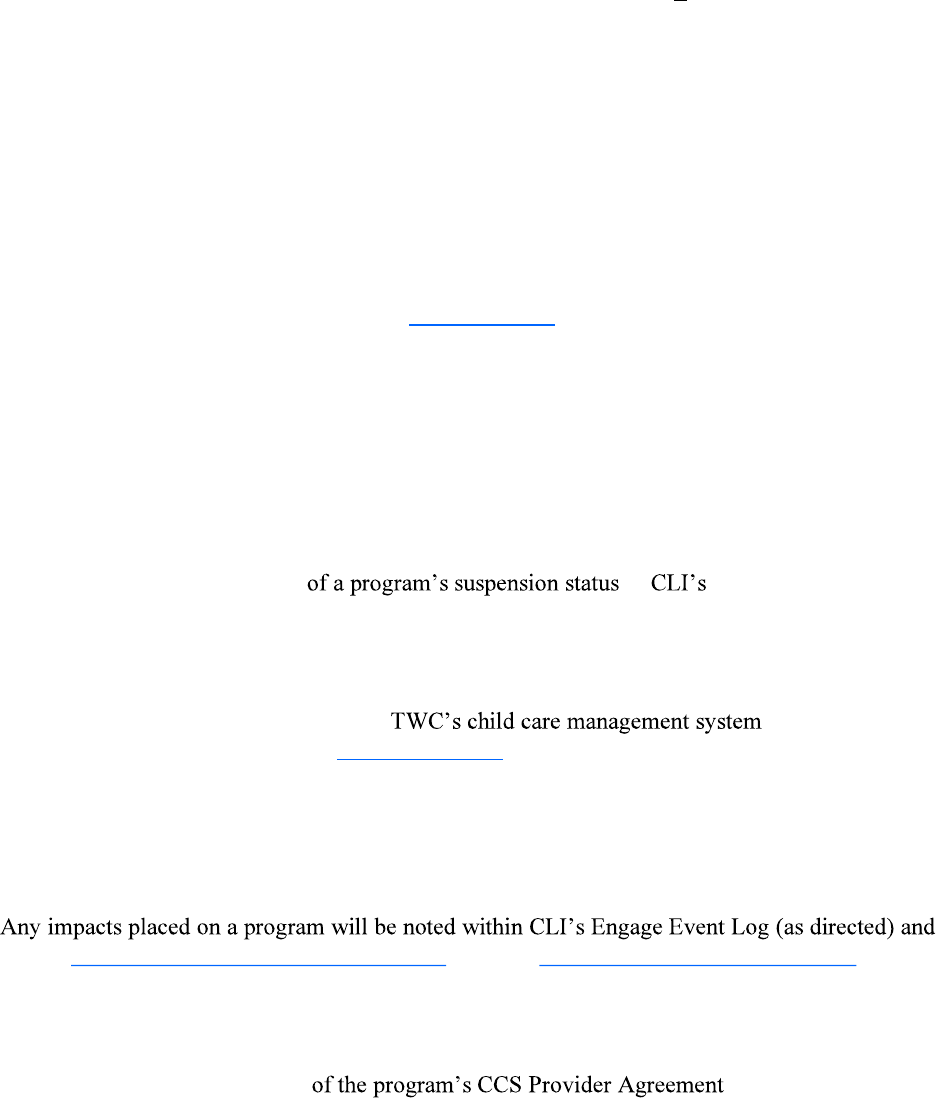
Texas Rising Star Certification Guidelines 36 October 2024
during that six-month time frame; however, the assessment may not be conducted until the
conclusion of the probationary period.
Losing a Star Level and Texas Rising Star Suspension Status
There are several circumstances that may result in a Texas Rising Star certified program either
losing a star level or being placed on Texas Rising Star suspension status, as described in Table
4.1 and Table 4.2.
The impact of a child care and early learning program losing a star level will last for six months
at a minimum. A program may return to its previous star level if it meets the requirements of the
determination for the drop, which includes not receiving any additional specified licensing
deficiencies within the six-month time frame related to the star-level drop.
Suspension status occurs when a certified program falls below the Two-Star level. A child care
and early learning program that is placed on suspension status is still considered as participating
in Texas Rising Star, but it is no longer considered certified and does not qualify for the Entry
Level designation time frame. Pursuant to §809.132(h)(1), the program is required to maintain
the Entry Level points threshold during the suspension status and will be reviewed monthly for
Entry Level points threshold compliance. For self-developed CQIPS, the program will be
required to provide an updated CQIP to address this impact.
A child care and early learning program on suspension status will be eligible for reassessment
after six months following the start of its suspension, as long as no additional specified licensing
deficiencies noted within Section 3 and/or Section 4of the screening form are cited during the
suspension period. The program must comply with eligibility requirements and request a
reassessment via the online request form within 15 months of the suspension impact. The
assessor must document details in Engage Event Log to
ensure that proper procedures are followed for these situations. A program that is unable (or
ineligible) to move out of suspension status by the ninth month of the suspension will not receive
new CCS family referrals, unless the child care program is located in a child care desert or serves
an underserved population, as defined and approved by TWC. Boards must ensure that intake is
appropriately closed and documented in . For more
information about this request, see WD Letter 12-24.
Any child care and early learning program that has been placed on suspension status due to not
meeting structural measures during an assessment may request reassessment via the online
request form after six months from the start of the suspension status, pending CCR licensing
history compliance.
via the Texas Rising Star Impacts Notice form found in Section 5: References and Forms.
A program that is unable to meet eligibility for certification by the end of the suspension time
frame will receive a written Notice of Termination at the beginning of the 15th month. The
Notice of Termination will provide for a 30-day period prior to the termination date (30 days
post the suspension time frame) during which time
the Board will work with enrolled CCS families to identify eligible child care and early learning
programs to which they may transfer. Child care and early learning programs in this situation
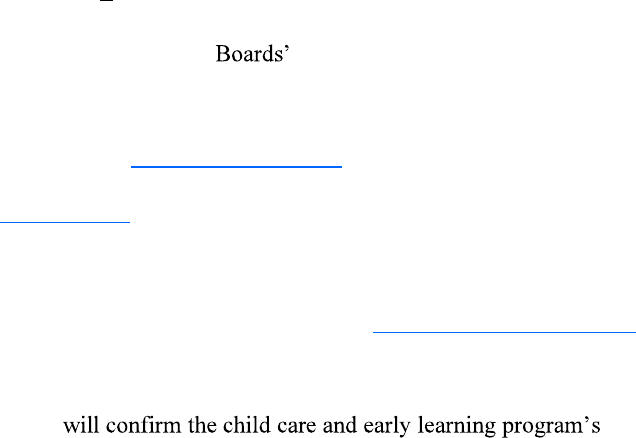
Texas Rising Star Certification Guidelines 37 October 2024
must meet Texas Rising Star certification eligibility and screening requirements and be assessed
at least at a Two-Star certification level to return to providing CCS. Boards may offer mentoring
to these programs during this time if the mentor caseloads allow and should have a
modified mentoring agreement in place if so. Programs returning to CCS after termination due to
noncompliance with suspension will need to complete the following steps:
1) Create and implement a Self-Developed CQIP until eligible and ready to request
assessment
2) Submit an Interest Form (this notifies CLI and its Board that a program is ready to return
to CCS and CLI Engage)
3) Upload the required documents within CLI Engage, including those needed for scoring
Category 1 and 3
4) Request an Initial Assessment through the online Certification Request Form (this
notifies CLI that a program has uploaded its documents to CLI Engage and is ready for
assessment)
The Board and the CAE eligibility for
both providing CCS and for Texas Rising Star and communicate any applicable next steps. This
may include the Board assigning a mentor to verify CQIP requirements have been met, entering
into a modified CCS Provider and/or Mentoring Agreement until certification is awarded, and
providing basic technical assistance prior to the assessment.
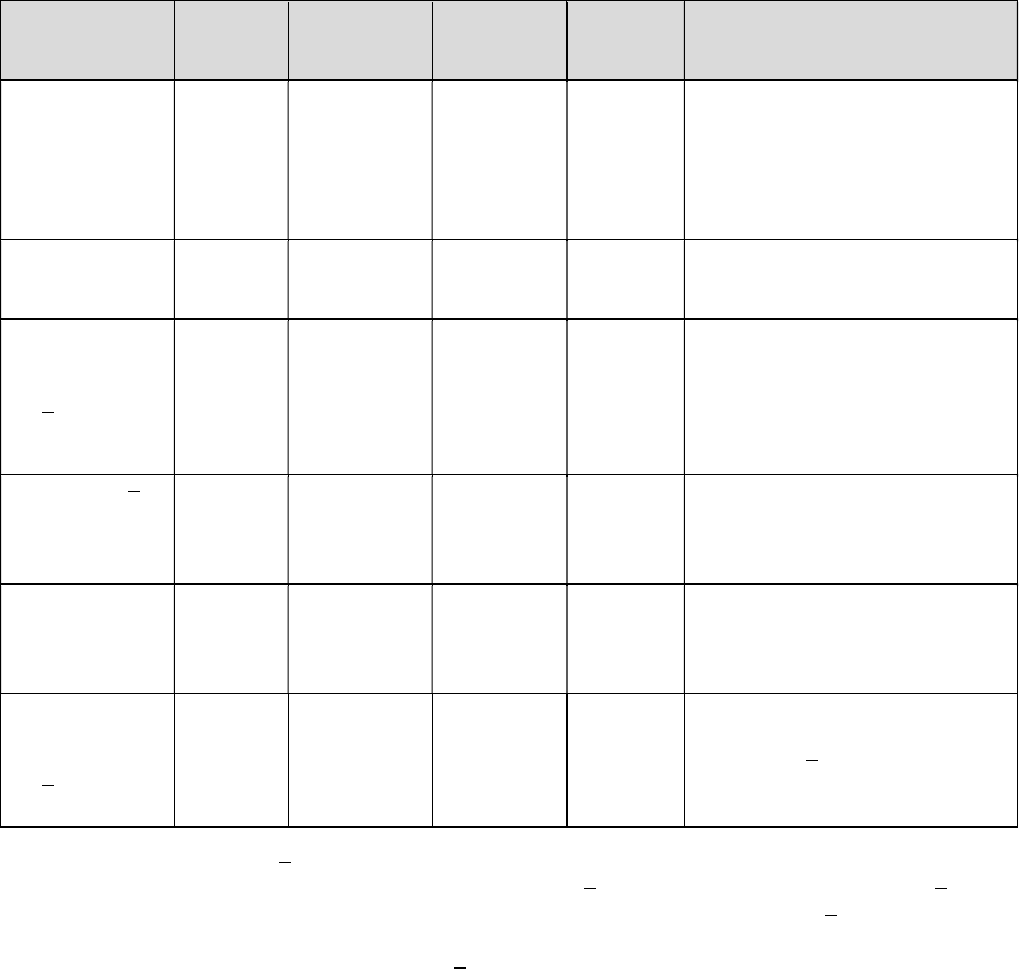
Texas Rising Star Certification Guidelines 38 October 2024
Table 4.1: Initial Impact of Certain Deficiencies on Texas Rising Star Status
Impact
TRS
Applicant
TRS
Two-Star
Program
TRS
Three-Star
Program
TRS
Four-Star
Program
Duration/Reassessment Eligibility
CCR Corrective
Action; Board
Corrective Action;
or TWC Notice of
Freeze
Not eligible
Suspension
status
Suspension
status
Suspension
status
Eligible to request a reassessment
six months from suspension status;
may not currently be on CCR
Corrective Action, Board Corrective
Action, and/or TWC Notice of
Freeze
Cited for CCR
firearms
deficiency
Not eligible
Suspension
status
Suspension
status
Suspension
status
Eligible to request a reassessment
six months from suspension status
More than 40 t
otal
points (high-
and/or medium-
high weighted
CCR deficiencies)
Not eligible
Suspension
status and
immediate loss
of CCS
Provider
Agreement
Suspension
status and
immediate
loss of CCS
Provider
Agreement
Suspension
status and
immediate
loss of CCS
Provider
Agreement
Eligible to request a reassessment
once the program falls under the
points threshold and can meet the
initial certification screening criteria
Any star-level
drop deficiency*
(
Texas Rising Star
Guidelines)
Not eligible
Suspension
status
Dropped to
Two-Star
level for six
months
Dropped to
Three-Star
level for six
months
Eligible to be reinstated at former
level if no denoted star-level drop
deficiencies are received within six-
month reduction time frame
Any Probation A
deficiencies
(
Texas Rising Star
Guidelines)
Not eligible
Six-month
probation
Six-month
probation
Six-month
probation
Eligible to have probation ended if
no Probation A deficiencies are
received within the six-month
probation time frame
Probation B 26-
40
total points (high-
and/or medium-
high weighted
CCR deficiencies)
Not eligible
Six-month
probation
Six-month
probation
Six-month
probation
Eligible to have Probation B ended
if no additional high- and/or
medium-high weighted CCR
deficiencies are received within the
six-month probation time frame
Note: The impact of star-level drop deficiencies is applied for each deficiency cited. For example: On
September 1, 2024, a Four-Star program receives two star-level drop deficiencies. The first star-level drop
deficiency moves the Four-Star program to Three-Star certification. The second star-level drop deficiency
results in loss of an additional star level, moving the program to Two-Star certification. A program at Three-
Star certification that receives two star-level drop deficiencies will be placed on suspension status.

Texas Rising Star Certification Guidelines 39 October 2024
Table 4.2: Impact of Additional Deficiencies on Texas Rising Star Status
Current
Impact
Status
Additional
Impact
TRS Two-
Star
Program
TRS Three-
Star
Program
TRS Four-Star
Program
Duration
Star-level
reduction
Citation of
additional star-
level drop
deficiency
Suspension
status
Dropped to
Two-Star level
N/A Eligible to be reinstated at
former level or reassessed if no
denoted deficiencies are
received within second six-
month reduction time frame.
First
Probation A
(specified
deficiencies)
New specified
CCR
deficiencies (<
41 total
points of
high- and/or
medium-high
weighted)
Suspension
status
Second
probation
(consecutive)
and dropped to
Two-
Star level
for six months
Second probation
(consecutive) and
dropped to Three-
Star level for six
months
Eligible to be reinstated at
former level or reassessed if no
denoted deficiencies are
received within second six-
month reduction time frame.
First
Probation B
(total)
New high- or
medium-high
weighted CCR
deficiencies (<41
total points of
high- and/or
medium-high
weighted)
Suspension
status
Second
probation
(consecutive)
and dropped to
Two-
Star level
for six months
Second probation
(consecutive) and
dropped to Three-
Star level for six
months
Eligible to be reinstated at
former level or reassessed if no
high- or medium-high
weighted CCR deficiencies are
received within second six-
month reduction time frame.
Second
Probation A
(specified
deficiencies)
New specified
CCR
deficiencies (<41
total points of
high- and/or
medium-high
weighted)
Suspension
status
Suspension
status
Suspension status
Eligible to be reassessed six
months from start of
suspension status if no
specified deficiencies are
received within those six
months.
Second
Probation B
(total)
New high-
and/or medium-
high weighted
CCR
deficiencies (<41
total points of
high- and/or
medium-high
weighted)
Suspension
status
Suspension
status
Suspension status
Eligible to be reassessed 6
months from start of
suspension status if no high-
or
medium-high weighted CCR
deficiencies are received within
those six months.
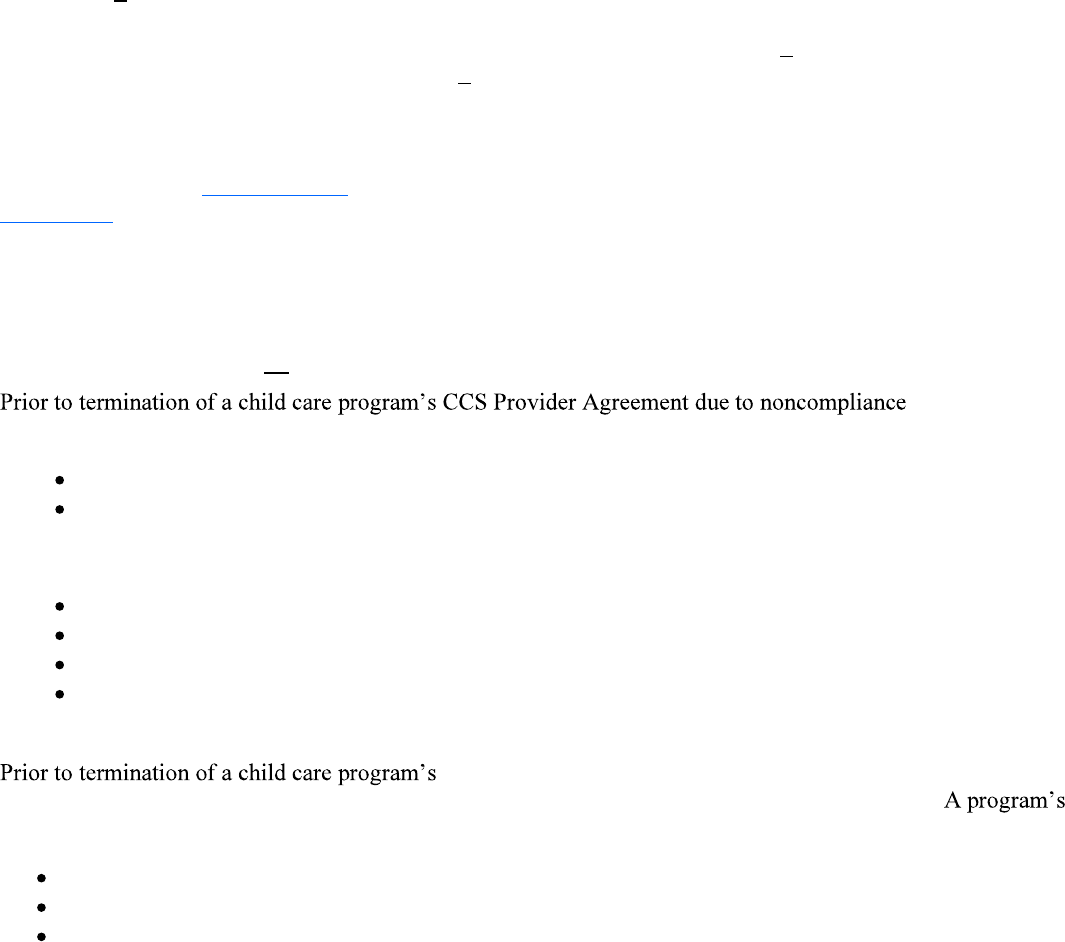
Texas Rising Star Certification Guidelines 40 October 2024
Termination of CCS or Mentoring Services
There may be situations when either the CCS Provider Agreement or Texas Rising Star Mentoring Agreement
must be terminated based on a specific noncompliance, as discussed herein, or due to a program voluntarily
withdrawing.
Entry Level designated child care and early learning programs that voluntarily withdraw or are terminated from
CCS may request to return to CCS once they meet Entry Level requirements and will be provided the amount of
time remaining on their initial 24-month time frame to become Texas Rising Star certified. Example: A program
is designated as Entry Level from January 2024 October 2024, which is 10 months out of the 24 months allowed;
when it returns to CCS, it will have 14 months to achieve certification.
Certified child care and early learning programs (Two-, Three-, or Four-Star) may be terminated from CCS due to
noncompliance with §809.132(h)(1), failure to maintain Entry Level points threshold during suspension status, and
§809.132(i), failure to obtain certification at the end of suspension status. Additional termination guidance is
provided below for each agreement type. Certified child care and early learning programs (Two-, Three-, or Four-
Star) that are terminated may request an assessment to become certified again at any time as long as they meet all
the Texas Rising Star eligibility and screening form compliance requirements at the time of request. Note: These
programs do not qualify for the 24-month Entry Level designation time frame.
CCS Provider Agreement Texas Rising Star Provisions
specific to Texas
Rising Star provisions, a Board must document all pertinent incidents of noncompliance, which include:
determination of illegal or fraudulent conduct; and
failure to honor the terms of the agreement and related state, federal or local law and regulation.
Noncompliance may result in adverse action, such as the following:
Board Service Improvement Agreement or Board Corrective Action
Closing of provider intake
Nonpayment or recoupment of funds, when applicable
Termination or nonrenewal of the CCS Provider Agreement
Texas Rising Star Mentoring Agreement
Texas Rising Star Mentoring Agreement because of noncompliance
with the Mentoring Agreement, a Board must document all pertinent incidents of noncompliance.
noncompliance may include:
consistent unresponsiveness to a mentor by a program administrator;
not allowing a mentor to conduct monthly visits; or
inappropriate conduct by program staff toward a mentor or other Workforce Solutions Office staff
members.
Note: Child care and early learning programs will not be terminated from their CCS Provider Agreements for
failure to make advancements in the quality improvement strategies outlined in their CQIP or for termination of
the Texas Rising Star Mentoring Agreement.
Programs must be provided with a written warning of their noncompliance and an opportunity to address their
areas of noncompliance before termination. Child care and early learning programs that have not corrected their
areas of noncompliance for the issues identified or that failed to acknowledge the notice will be considered as
voluntarily terminating their mentoring agreement with their mentor.

Texas Rising Star Certification Guidelines 41 October 2024
The child care program may terminate the Mentoring Agreement at any time without repercussion to its CCS
Provider Agreement; however, the program must continue to comply with the requirements of Texas Rising Star.
Programs that have their Texas Rising Star Mentoring Agreement terminated (voluntarily or not) will receive an
official written Notice of Termination from their Board acknowledging the ending of the Mentoring Agreement,
which will include information about
as a CCS provider.
Termination of the Mentoring Agreement will require the child care and early learning program to implement a
self-directed CQIP in accordance with those requirements as stated in these Guidelines.

Texas Rising Star Certification Guidelines 42 October 2024
Section 5: References and Forms
Texas Rising Star Certification Request: a form for all facility types when requesting initial certification or
recertification, also available in Spanish and Vietnamese
Facility Change Rubric: a rubric of requirements for each type of facility change, including the type of change and
impacts for compliance or noncompliance
Continuous Quality Improvement Plan: an online form for all facility types when creating goals and action steps to
obtain or maintain certification, including requirements for compliance, also available in Spanish
Texas Rising Star Impacts Notice: a form for all facility types when a change in certification status occurs,
including star level drops, probation, and suspension status
Screening Forms
Texas Rising Star Initial Screening Form Licensed Child Care Centers: a screening form for noncertified
licensed child care centers, also available in Spanish and Vietnamese
Texas Rising Star Current Screening Form Licensed Child Care Centers: a screening form for certified licensed
child care centers, also available in Spanish and Vietnamese
Texas Rising Star Initial Screening Form Licensed/Registered Child Care Homes: a screening form for
noncertified registered or licensed child care homes, also available in Spanish and Vietnamese
Texas Rising Star Current Screening Form Licensed/Registered Child Care Homes: a screening form for
certified registered or licensed child care homes, also available in Spanish and Vietnamese
Texas Rising Star Initial Screening Form After-School Programs: a screening form for noncertified before-and
after-school only programs, also available in Spanish and Vietnamese
Texas Rising Star Current Screening Form After-School Programs: a screening form for certified before-and
after-school only programs, also available in Spanish and Vietnamese
Facility Assessment Record Forms
Facility Assessment Record Form All Facility Types: a scoring form for all facility types that includes all Texas
Rising Star measures for Category 1: Director and Staff Education/Experience and Category 3: Program
Administration, also available in Spanish and Vietnamese
Facility Assessment Record Form Licensed Child Care Centers: a scoring form for licensed child care centers
that includes only the Texas Rising Star measures for Category 1: Director and Staff Education/Experience and
Category 3: Program Administration that are applicable to licensed child care centers, also available in Spanish
and Vietnamese
Facility Assessment Record Form Registered/Licensed Child Care Homes: a scoring form for registered/licensed
child care homes that includes only the Texas Rising Star measures for Category 1: Director and Staff
Education/Experience and Category 3: Program Administration that are applicable to registered/licensed child care
homes, also available in Spanish and Vietnamese
Facility Assessment Record Form After-School Programs: a scoring form for licensed after-school programs that
includes only the Texas Rising Star measures for Category 1: Director and Staff Education/Experience and
Category 3: Program Administration that are applicable to licensed after-school programs, also available in
Spanish and Vietnamese

Texas Rising Star Certification Guidelines 43 October 2024
Classroom Assessment Record Forms
Classroom Assessment Record Form All Ages: a scoring form for all classroom age groups that includes all of
the Texas Rising Star measures for Category 2: Teacher-Child Interactions and Category 4: Indoor/Outdoor
Learning Environment, also available in Spanish and Vietnamese
Classroom Assessment Record Form Infants (0 17 months): a scoring form for infant (0 to 17 months)
classrooms that includes the Texas Rising Star measures for Category 2: Teacher-Child Interactions and Category
4: Indoor/Outdoor Learning Environment that are applicable to infant (0 17 month) classrooms, also available in
Spanish and Vietnamese
Classroom Assessment Record Form Toddler, Preschool, or School Age (18 months to 12 years): a scoring form
for toddler, preschool, or school-age (18 months to 12 years) classrooms that includes the Texas Rising Star
measures for Category 2: Teacher-Child Interactions and Category 4: Indoor/Outdoor Learning Environment that
are applicable to toddler, preschool, or school-age (18 months 12 years) classrooms, also available in Spanish and
Vietnamese
Other Resources
Accreditation Recognition Application Process: a resource for national accreditation entities to refer to when
requesting acknowledgment of their standards against Texas Rising Star standards
Texas Rising Star Certification Guidelines 44 October 2024
PAGE INTENTIONALLY LEFT BLANK
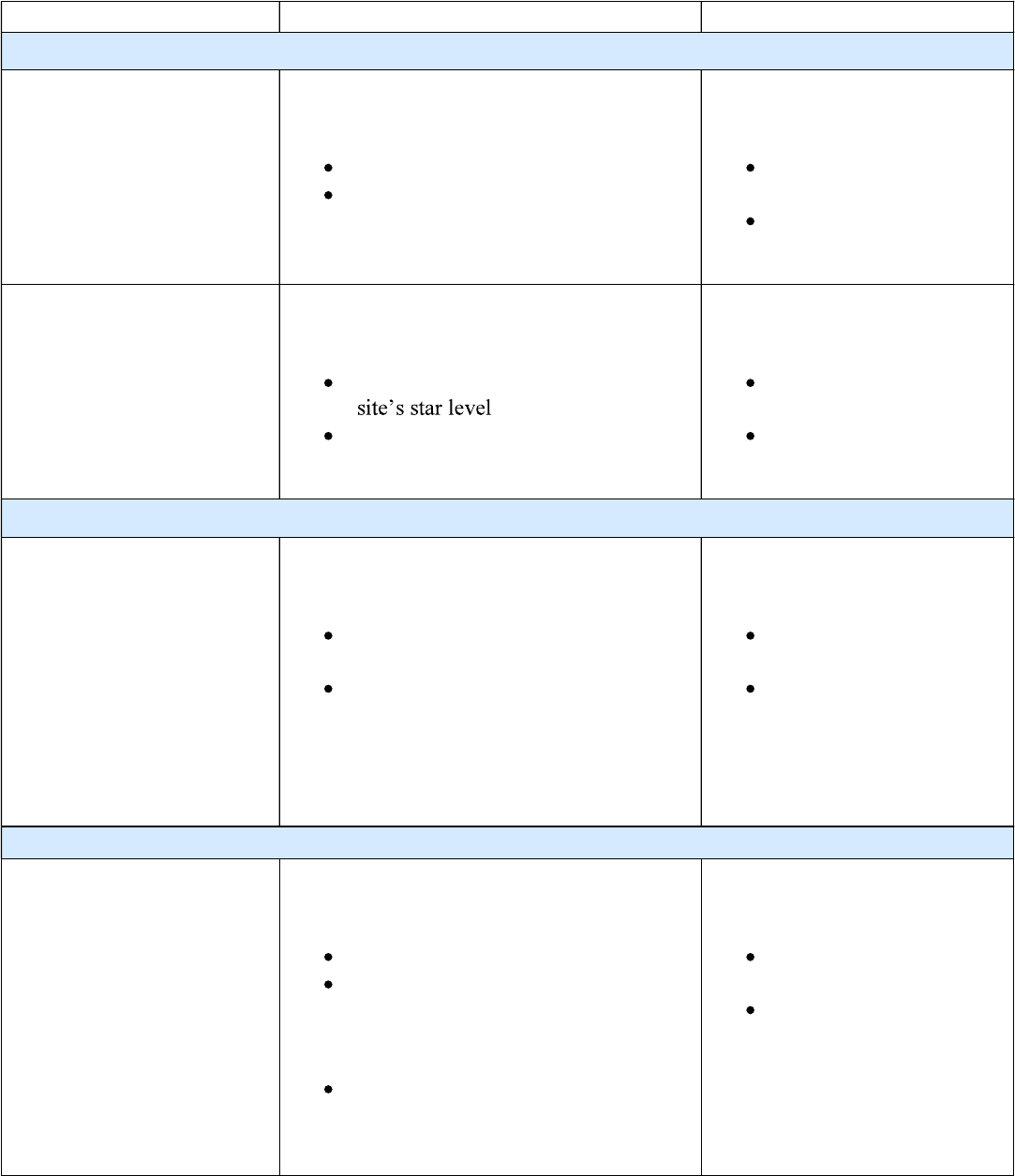
Texas Rising Star Certification Guidelines 45 October 2024
Facility Change Rubric
Change Impact for Compliance
Impact for Noncompliance
Facility Expansion
Currently certified program
opens a second location in
the same city, county, or
ZIP code
If new facility meets eligibility
requirements (with the exception of 12
months of CCR history after the change), it:
retains star level of current site; and
receives a full assessment within
three months of opening.
If new facility does not meet
eligibility requirements (CCR
history waived), it:
does not retain star
level; and
may be assessed once it
meets initial screening
criteria.
Currently certified program
opens a third or more
location in the same city,
county, or ZIP code
If new facility meets eligibility
requirements (with the exception of 12
months of CCR history after the change), it:
retains level of the lowest current
; and
receives a full assessment within
three months of opening.
If new facility does not meet
eligibility requirements (CCR
history waived), it:
does not retain star
level, and
may be assessed once it
meets initial screening
criteria
.
Facility Split
Currently certified program
moves a subset of its staff to
a new location in the same
city, county, or ZIP code
(thus, only a subset of age
groups are served at both
locations, for example, the
current site becomes an
infant and toddler center,
while the new site becomes
a preschool center)
If new facility meets eligibility
requirements (with the exception of 12
months of CCR history after the change), it:
retains star level of the previous site;
and
receives a full assessment within
three months of the split.
Note: the current facility must also be
reassessed within three months of the split.
If new facility does not meet
eligibility requirements (CCR
history waived), it:
does not retain star
level; and
may be assessed once it
meets initial screening
criteria.
Facility Moves
Currently certified program
physically moves the
location of the program
within the same city,
county, or ZIP code
If facility continues to meet eligibility
requirements (with the exception of 12
months of CCR history after the change):
it retains star level;
classrooms previously served (same
teacher and age group) are assessed
for only Category 4 within three
months of move; and
new classrooms and teachers are
observed for all applicable measures
within all categories.
If new facility does not meet
eligibility requirements (CCR
history waived), it:
does not retain star
level; and
may be assessed once it
meets initial screening
criteria.
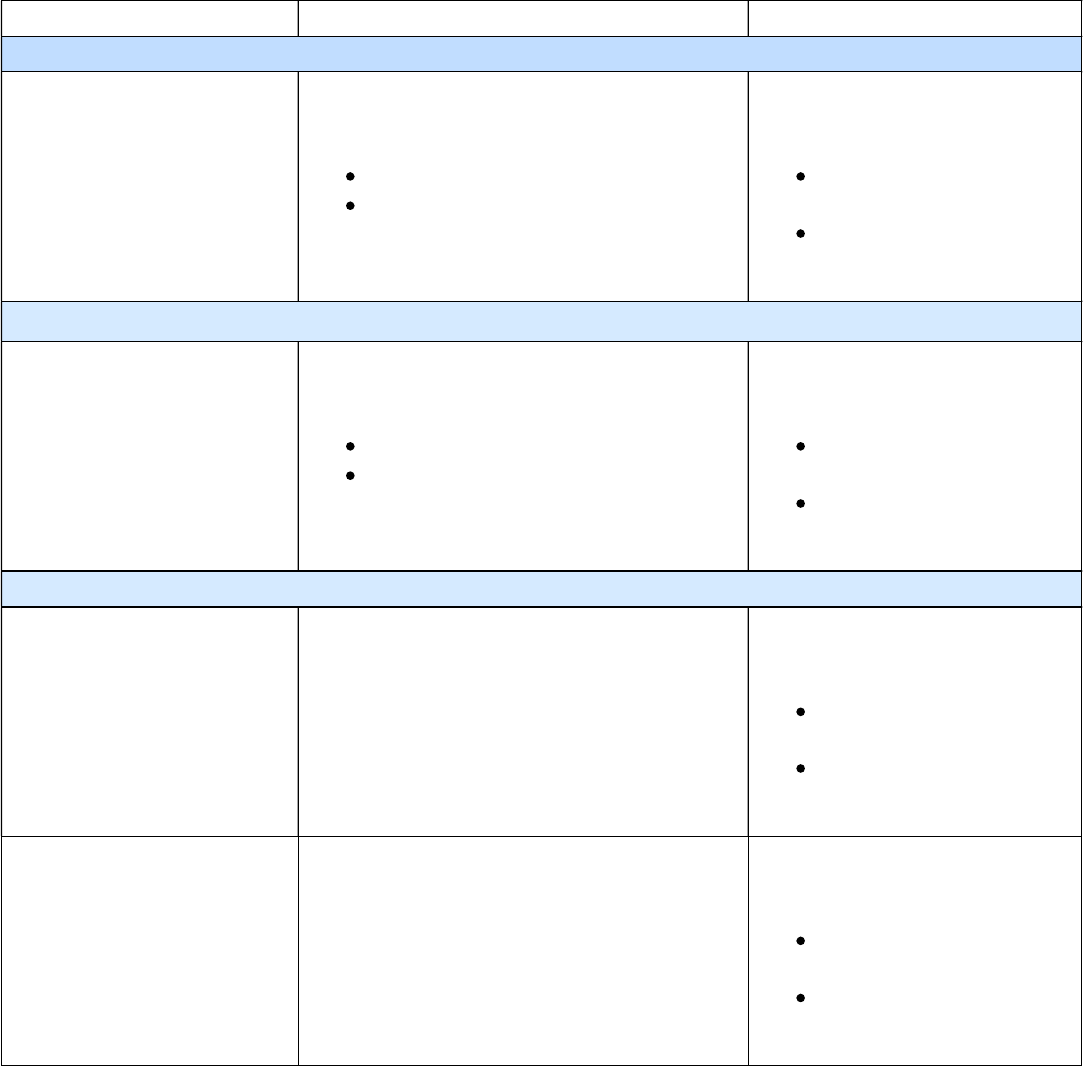
Texas Rising Star Certification Guidelines 46 October 2024
Change Impact for Compliance
Impact for Noncompliance
Ownership Change
Currently certified program
changes ownership
If facility continues to meet eligibility
requirements (with the exception of 12
months of CCR history after the change), it:
retains star level; and
receives a full assessment within
three months of the change.
If new facility does not meet
eligibility requirements (CCR
history waived), it:
does not retain star
level; and
may be assessed once it
meets initial screening
criteria.
Facility-Type Change
Currently certified program
changes the type of facility
it runs (for example, a
registered home becomes
licensed home or a licensed
home becomes a licensed
center)
If facility continues to meet eligibility
requirements (with the exception of 12
months of CCR history after the change), it:
retains star level; and
receives a full assessment within
three months of the change.
If new facility does not meet
eligibility requirements (CCR
history waived), it:
does not retain star
level; and
can be assessed once it
meets initial screening
criteria.
Changes that May Result in a New License Number
Currently certified program
changes business entity type
(such as becoming an LLC
or going from for-profit to
nonprofit)
If facility continues to meet eligibility
requirements (with the exception of 12
months of CCR history after the change), no
impact is incurred.
If facility does not meet
eligibility requirements (CCR
history waived), it:
does not retain star
level; and
may be assessed once it
meets initial screening
criteria.
Currently certified program
changes program name
If facility continues to meet eligibility
requirements (with the exception of 12
months of CCR history after the change), no
impact is incurred.
If facility does not meet
eligibility requirements (CCR
history waived), it:
does not retain star
level; and
may be assessed once it
meets initial screening
criteria.
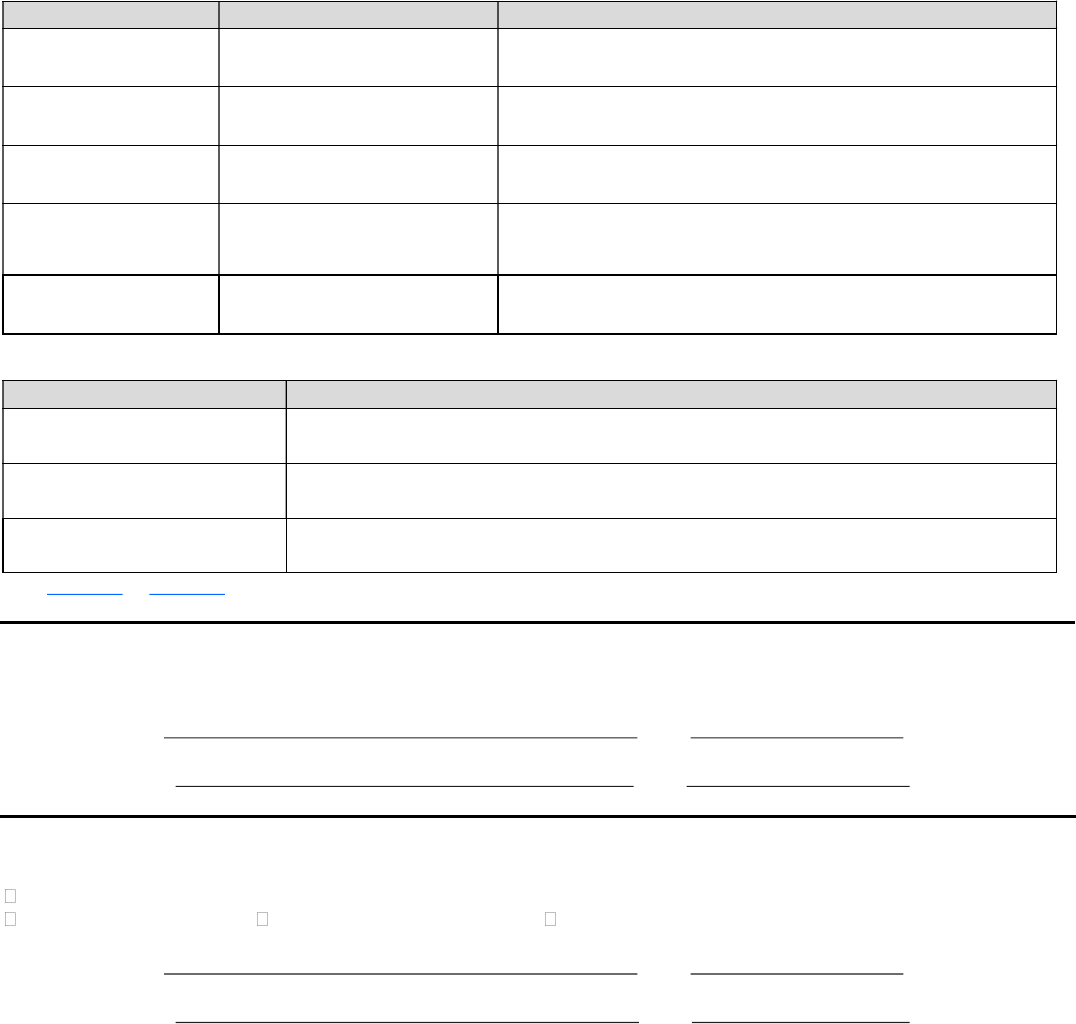
Texas Rising Star Certification Guidelines 47 October 2024
Texas Rising Star Impacts Notice
This form acknowledges that the program noted below has been placed on a Texas Rising Star impact as described within the table.
Facility name: CCR license number:
Date impact began: Length of impact:
From the impact column below, select which impact has occurred and complete the columns as denoted.
Impact Specified criteria Reason for impact (evidence)
Star-Level Drop
Denote current star level: __
Denote new star level: __
Probation A or B
Denote which:
A or B
Probation Continued
Denote which:
A or B
Suspension
Denote which:
Screening Form or
SIA
R
edetermination
Service Improvement
Agreement
Denote which category:
1,2,3, or 4
Requirements for eligibility reinstatement
Impact
Requirements for eligibility reinstatement
Star-Level Drop (Screening
Form) or Probation
Facility is not cited for specified deficiencies relating to impact.*
Suspension Status
Facility has not been Texas Rising Star for 6 months and meets initial certification
requirements (considering previous impacts).*
Service Improvement Agreement Facility maintains current star level upon assessment of specified categories.
*See Table 4.1 or Table 4.2 in the Texas Rising Star Certification Guidelines for specific information regarding screening impacts
reinstatement eligibility.
I understand that for my facility to be removed from this status, the facility must meet the requirements of the eligibility
reinstatement applicable to its impact.
Program Signature: Date:
TRS Staff Signature: Date:
Once the required time frame for impact has ended, Texas Rising Star staff will determine whether removal of action is warranted.
For screening impacts that are not met, and a new action is placed, a new form is completed.
Met requirement Date ended: _____________
Did not meet requirement: New impact/New form SIA determined new star level: __
Program Signature: Date:
TRS Staff Signature: Date:
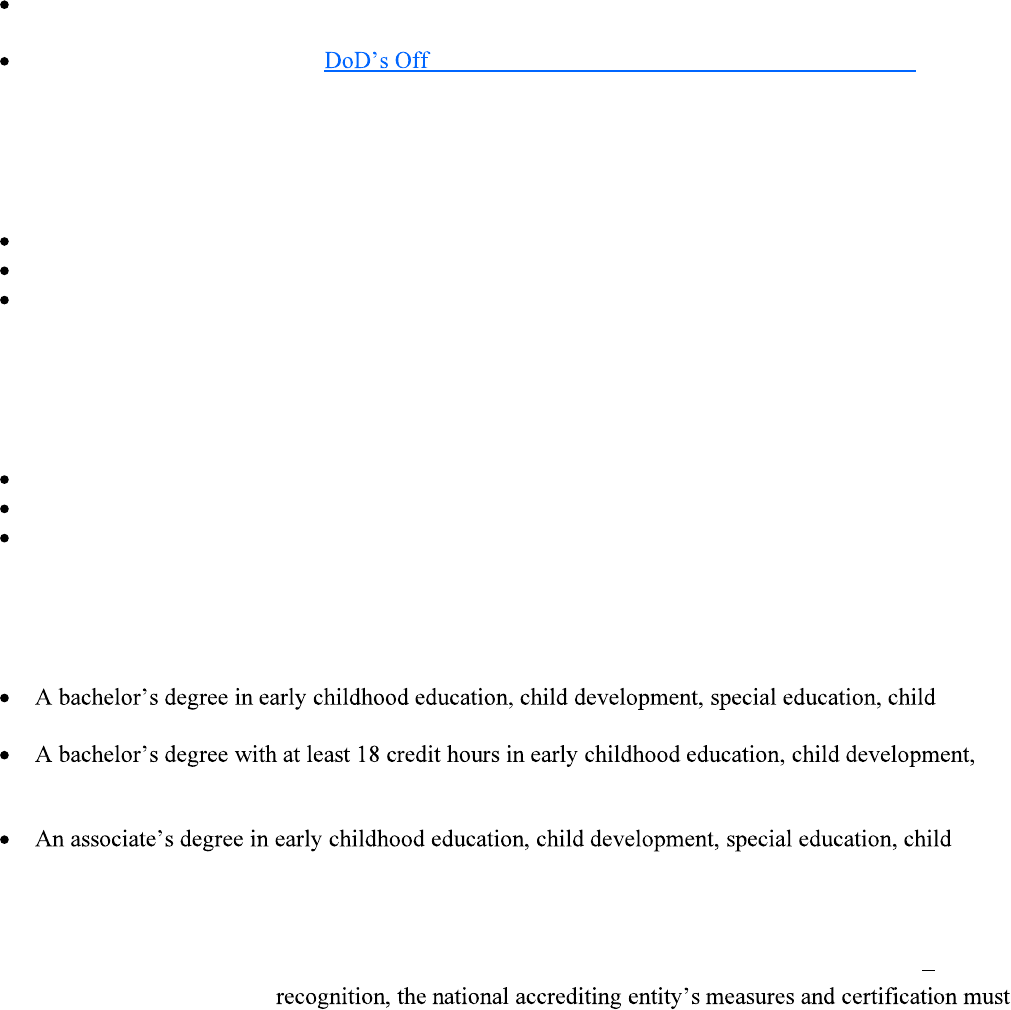
Texas Rising Star Certification Guidelines 48 October 2024
Accreditation Recognition Application Process
US Department of Defense Recognition
Accreditation entities not currently recognized by the Texas Workforce Commission (TWC) that would like to
apply to be recognized through Texas Rising Star would be eligible to be certified through a modified Texas
Rising Star assessment if the accreditation is:
recognized by the US Department of Defense (DoD) for child care facilities operated by the US military
on military installations; or
recognized as participating in -Base Child Care Military Fee Assistance Program.
Established National Accreditation
For national accrediting entities not recognized by DoD, the minimum criteria required to be eligible to apply
for TWC recognition is that the accrediting entity must be well established and national in scope. To ensure this,
the accrediting entity must have:
accredited facilities in at least 26 states (50 percent of the 50 states and the District of Columbia);
at least 500 nationally accredited facilities; and
had the standards in place for at least five years.
Publicly Accessible Standards and List of Facilities
Information regarding TWC-recognized national accrediting entities is provided to parents as part of consumer
education required through the Child Care and Development Block Grant Act of 2014. Therefore, the national
accreditation entity must have a public website that contains, at a minimum:
its accreditation measures;
its scoring thresholds; and
a list of accredited facilities, searchable by state.
Minimum Assessor/Evaluator Qualifications
The national accrediting entity must have minimum assessor/evaluator qualifications that align with the
following Texas Rising Star requirements for assessors in TWC Chapter 809 Child Care Services rule
§809.134(c). Specifically, the assessor/evaluator qualifications must include one of the following:
psychology, educational psychology, elementary education, or family consumer science
special education, child psychology, educational psychology, elementary education, or family consumer
science with at least 12 credit hours in child development
psychology, educational psychology, elementary education, or family consumer science with two years
of experience as a director in an early childhood program
Includes All Age Groups
Texas Rising Star certification includes measures for all age groups served by the Texas Rising Star certified
facility. To be eligible for TWC
include all age groups served by the facility.
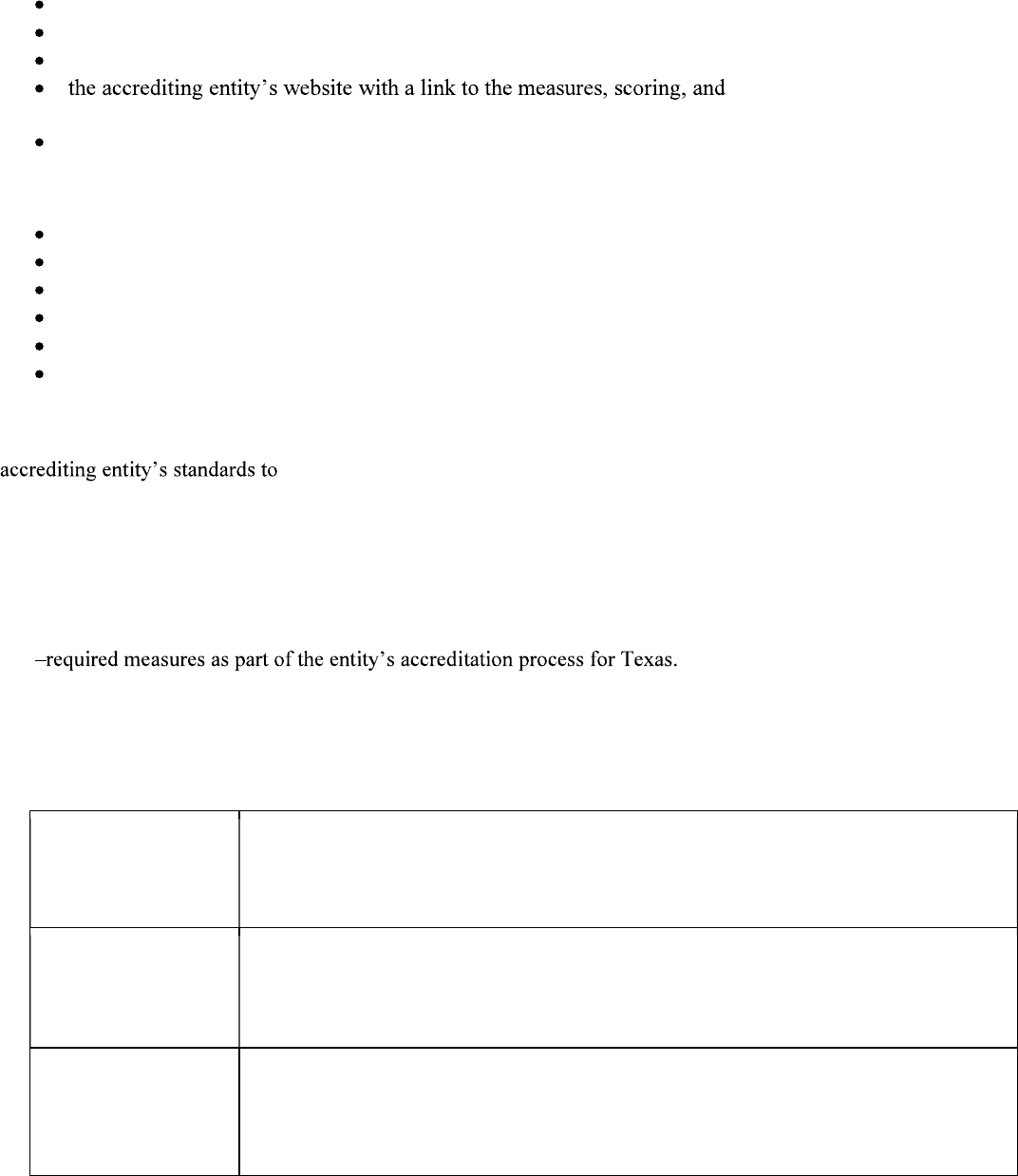
Texas Rising Star Certification Guidelines 49 October 2024
Application Requirements and Procedures
Accreditation entities must complete a profile, which describes their compliance with the eligibility criteria
listed above, specifically:
the number of states with accredited facilities;
the total number of accredited facilities;
how long the current accreditation standards have been in place;
program search information;
and
minimum assessor/evaluator qualifications.
The profile must also include:
content areas included in the accreditation standards;
total number of criteria;
total number and listing of the required measures;
percentage and number of measures that must be met in order to be certified;
length of the accreditation period; and
the monitoring process.
Submission of the Texas Rising Star Crosswalk
National accreditation entities must complete and submit a crosswalk document provided by TWC to compare the
Texas Rising Star standards.
Assessment of the Texas Rising Star Crosswalk
In the crosswalk, new accreditation entities must demonstrate that all Texas Rising Star Two-Star (required)
measures are also required by the accrediting entity.
If the Texas Rising Star Two-Star required measures are not required by the accrediting entity, the entity must
develop a separate assurance process to document that its accredited facilities in Texas will meet the Texas Rising
Star
Scoring of the Texas Rising Star Crosswalk
TWC staff will review and evaluate the submitted crosswalk. If the entity meets the minimum thresholds listed
below, the accreditation entity may be recognized within the Texas Rising Star program and eligible for a modified
assessment:
Texas Rising Star
Category
Accreditation Score Thresholds
Category 1
Accreditation requires all Texas Rising Star Two-Star (required) measures (or
entity has submitted a separate assurance process for Texas child care and early
learning programs); plus 80 percent of the Texas Rising Star points-based
measures
per facility type
are included in the accreditation measures
.
Category 3
Accreditation requires all Texas Rising Star Two-Star (required) measures (or
entity has submitted a separate assurance process for Texas child care and early
learning programs); plus, 80 percent of Texas Rising Star points-based measures
per age group are included in the accreditation measures.
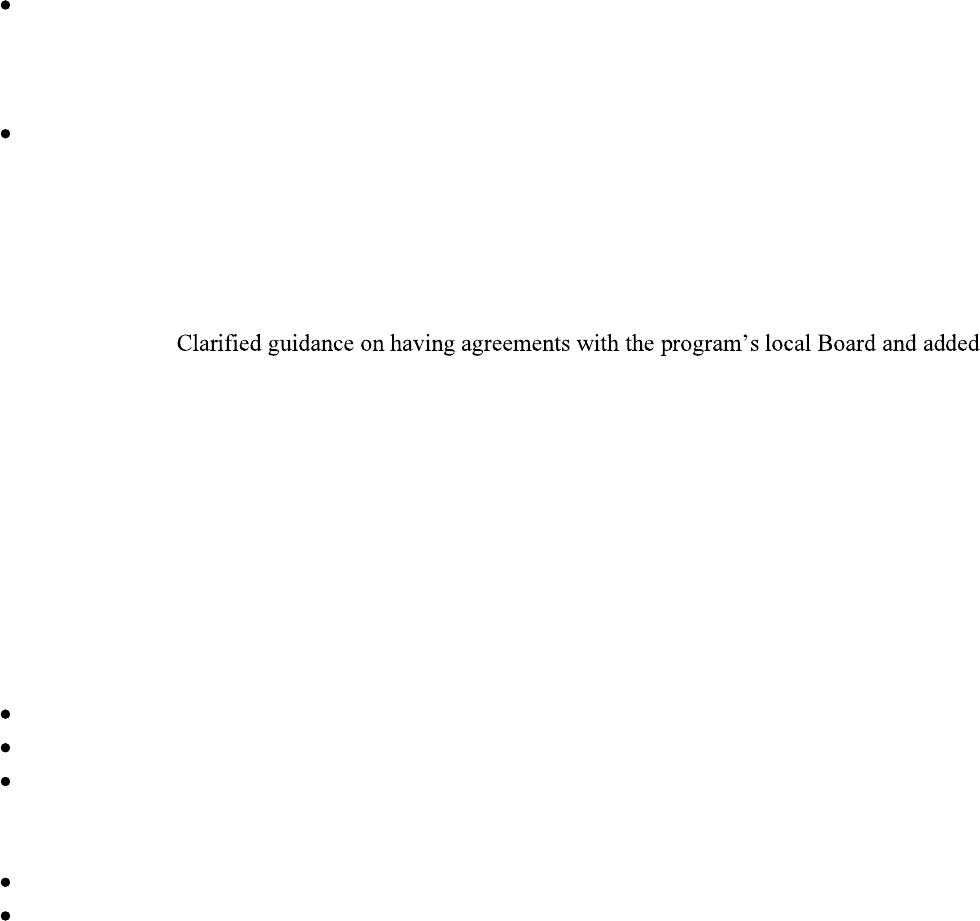
Texas Rising Star Certification Guidelines 50 October 2024
Quick Reference List of Changes
Revisions Approved July 2024 | Revisions Effective September 2024
Historical Perspective: Revised to streamline events and changes within last bullet regarding recent rule
changes related to the recent Texas Rising Star Four-Year Review
System for Progressive Quality Improvement: updated link to 2024 Board maximum payment rates
Entry Level Designation:
Revised guidance regarding
o the points threshold,
o time period for CCR history review
o updated link for WD Letter 23-22, Change 2
Added guidance regarding
o requirement to complete an Interest Form,
o no exceptions or waivers for programs failing to meet points threshold,
o monthly review of compliance during the final 6-months of Entry Level designation
o CCS intake opened once in compliance
o returning to CCS with remaining designation timeframe
Signed Agreements:
guidance related to opting out of mentoring services
Texas Rising Star Roles: Updated guidance on procurement of the centralized assessment entity.
Eligibility for Texas Rising Star: Revised to review six months of CCR history
Star-Level Drop: Revised to review six months of CCR history and added new points threshold requirement for
initial certification eligibility
Probation Deficiencies: Revised to review six months of CCR history and changes to specific CCR
deficiencies that have impact (supervision, ratios, and director responsibilities)
Ongoing Screening Process:
Revised to denote daily automated screening
clarified guidance on screening prior to assessment
Added guidance on impacts captured in CLI Engage automatically transferring to TX3C (once live)
Certification Process:
Revised and clarified the steps to certification
Added required documents for submission
DoD Programs: Added three accrediting agencies specific to Montessori and clarified Early Head Start/Head
Start
Considerations for Programs with Specific Philosophies: Clarified curriculum review guidance
Logo and Outreach Materials: Added guidance on upcoming digital toolkits for certified programs
Types of Program Assessments:
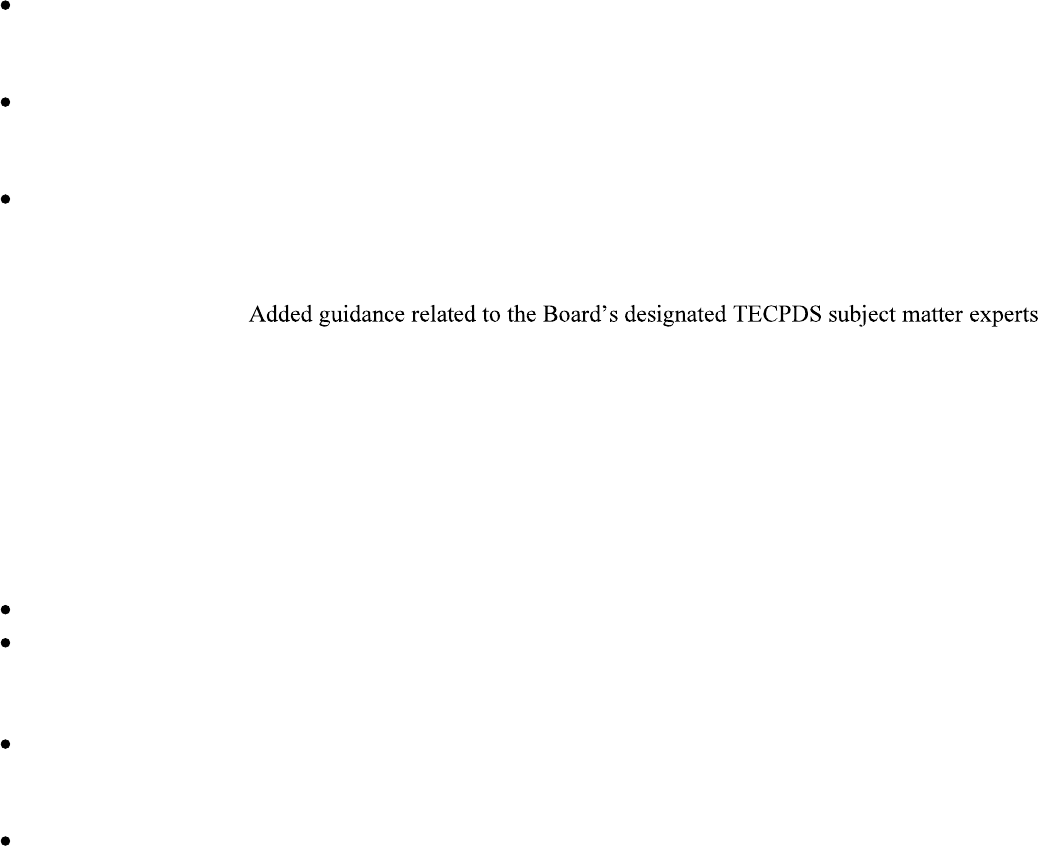
Texas Rising Star Certification Guidelines 51 October 2024
Clarified guidance
o on not meeting structural measures for assessments received after the initial
o which documents to submit for recertification
Added guidance
o Requesting assessments via the online request form
o Which type of programs might request each type of assessment
Revised guidance
o facility changes that result in an initial permit
o CAE conducting reconsiderations
Texas Workforce Registry:
CLASS® Option for Category 2: Revised guidance on submission of CLASS® observation scores and
updated WD Letter, Change 1 link
Continuous Quality Improvement: Added guidance for suspension status
Service Improvement Agreement: Added guidance regarding not requesting this assessment and yielding a
change in star level
Texas Rising Star Probation:
Clarified guidance on Probation A and B
Revised guidance for Probation B to have points threshold requirement
Losing a Star Level and Texas Rising Star Suspension Status:
Clarified guidance on
o returning to a star level
o eligibility for assessment on suspension
Added guidance
o for Boards to document closed intake in TX3C
o steps for a program to return to CCS after termination
Table 4.1 and 4.2: Impact of Deficiencies: Revised impacts and duration as applicable to match changes to
rule and clarifications provided
Facility Change Rubric: Revised to provide guidance as applicable to match the change related to initial permit
issued
Accreditation Recognition Application Process: Clarified guidance for eligibility of certification through
modified assessment, acknowledgement of DoD Child Care Military fee assistance program and crosswalk
requirements for Categories 1 and 3.
